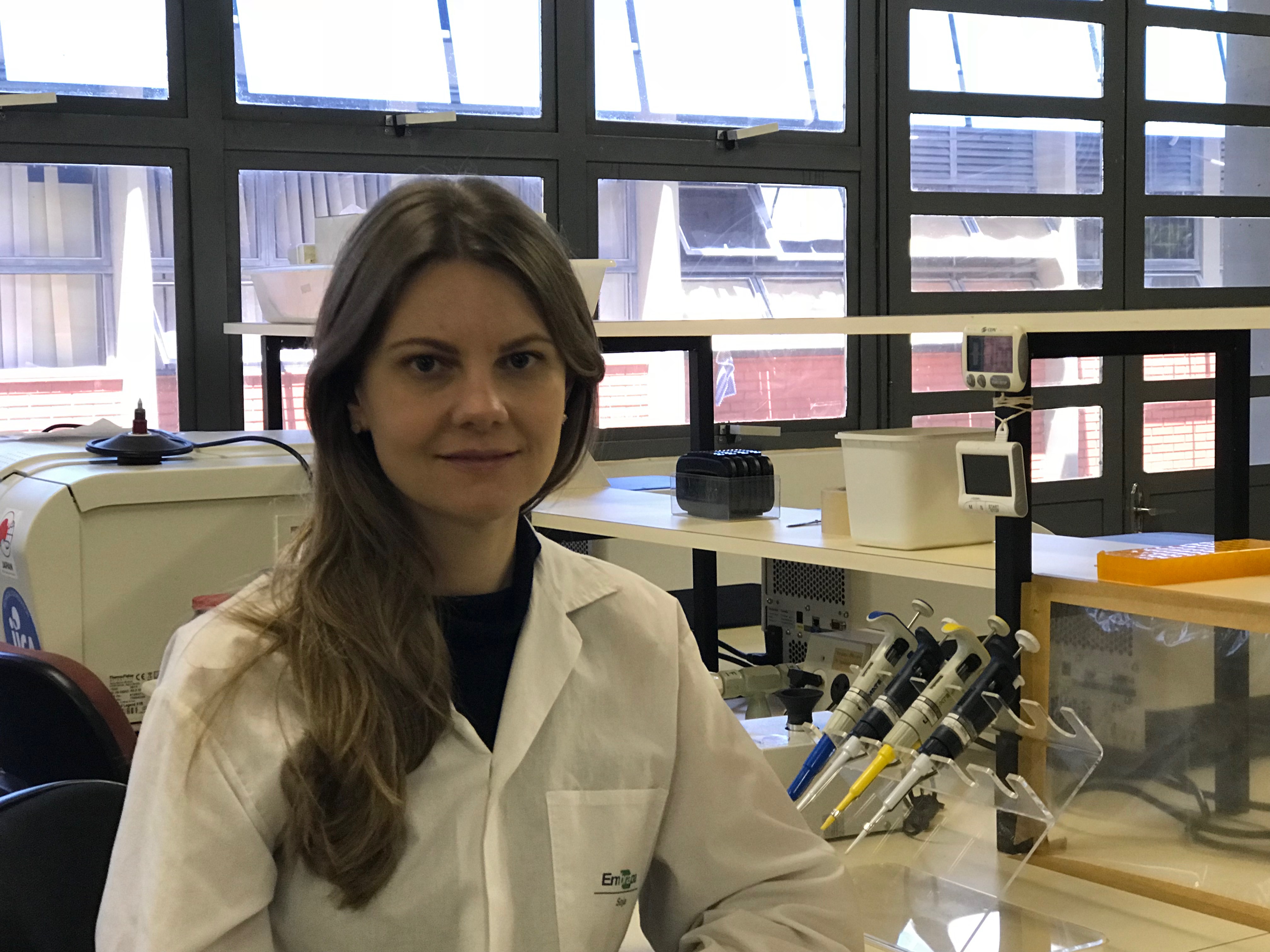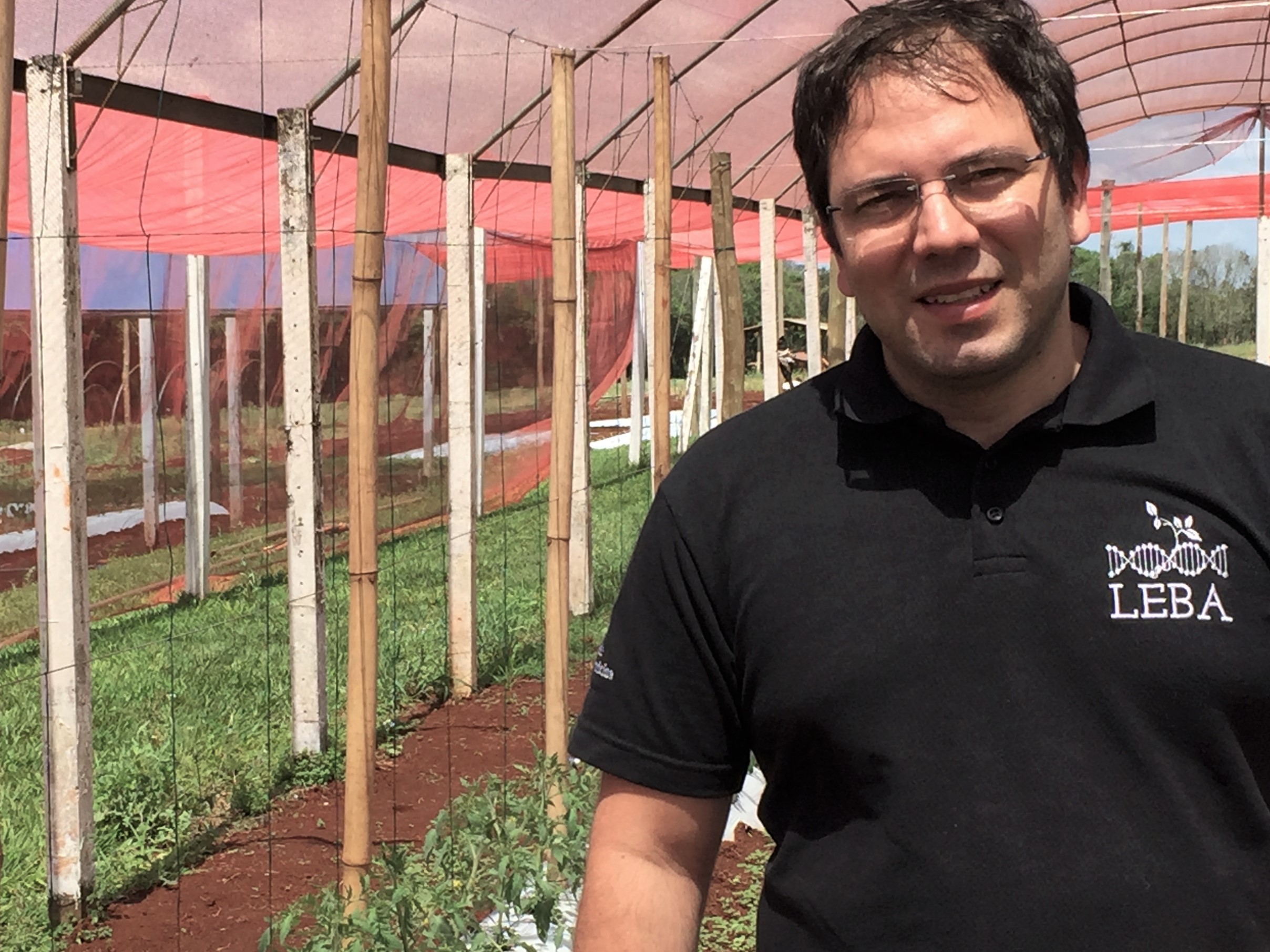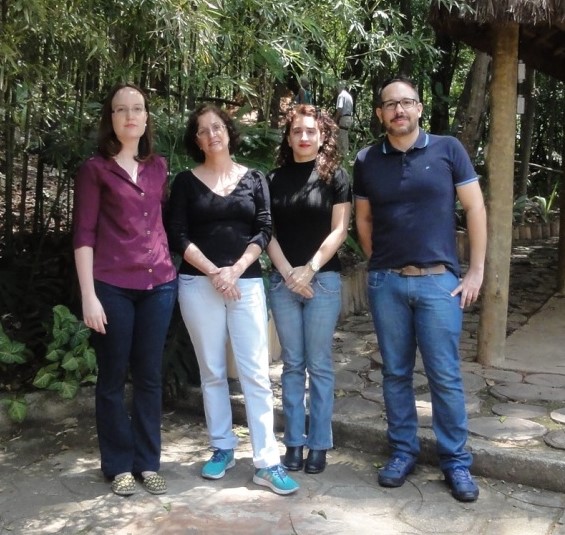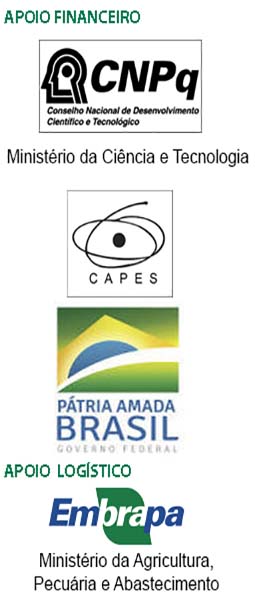Atenção
A partir do volume 18 (ano 2020) não foram publicados artigos de capa e carta do editor
Edição v38 - 2, 2020
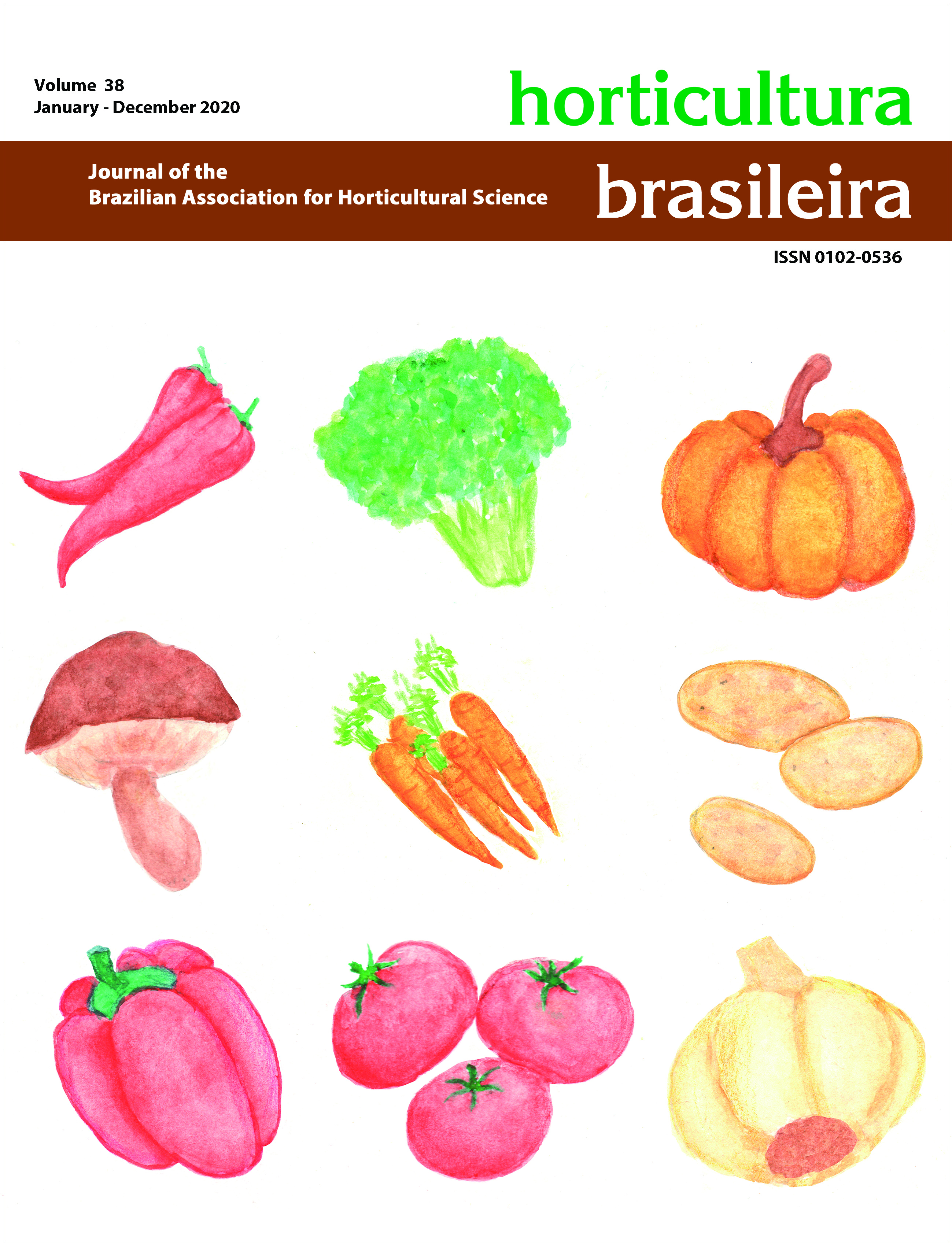
Edição v38 - 1, 2020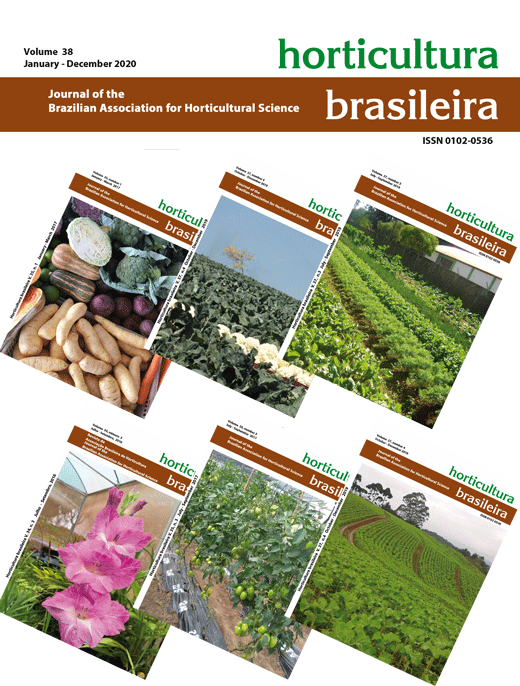
Edição v37 n4 - Outubro - Dezembro, 2019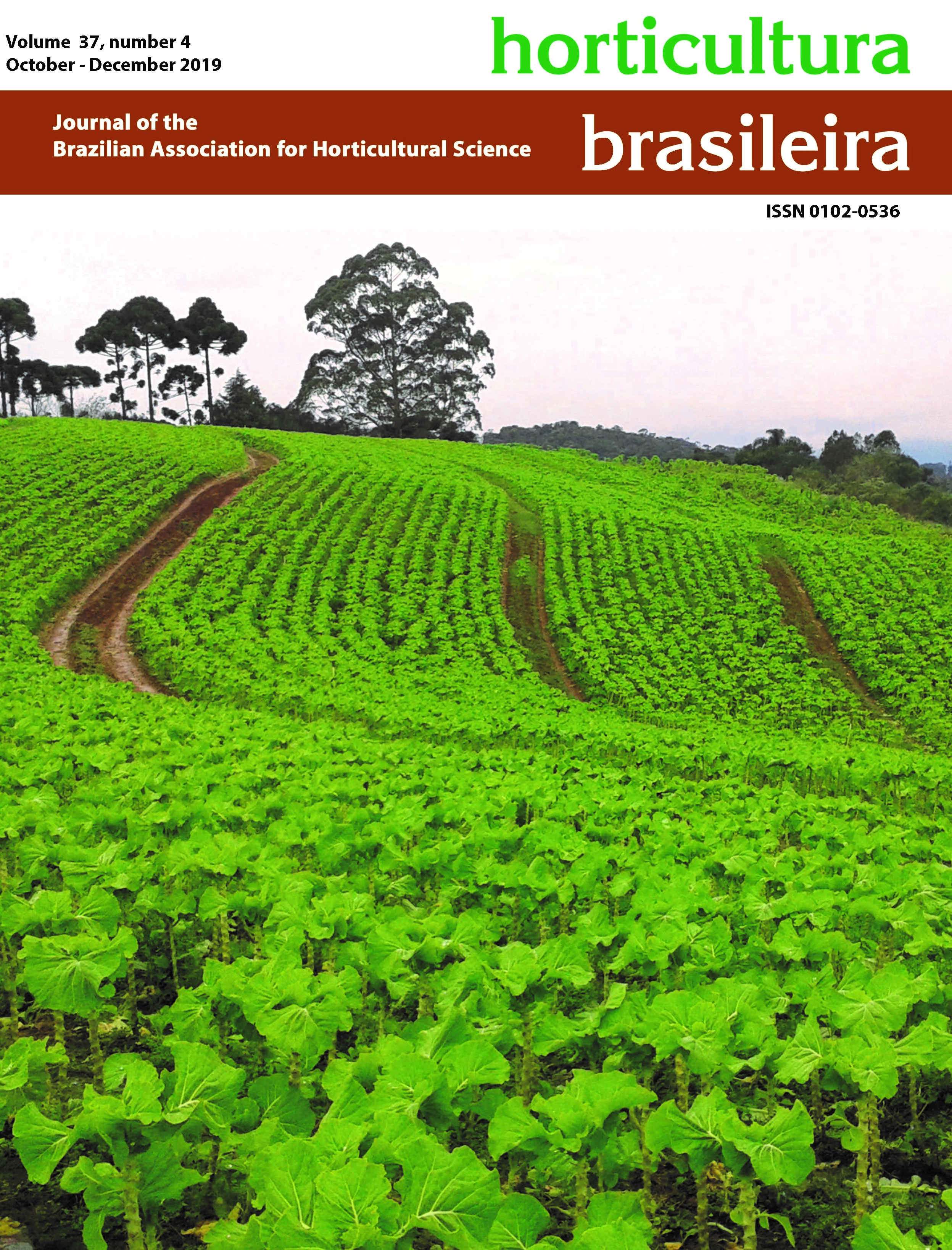
Collards production in the municipality of São José dos Pinhais, Paraná State, Brasil.
Foto by Raphael Augusto de C e Melo
Characterization of the Brazilian vegetable brassicas production chain
Autores convidados
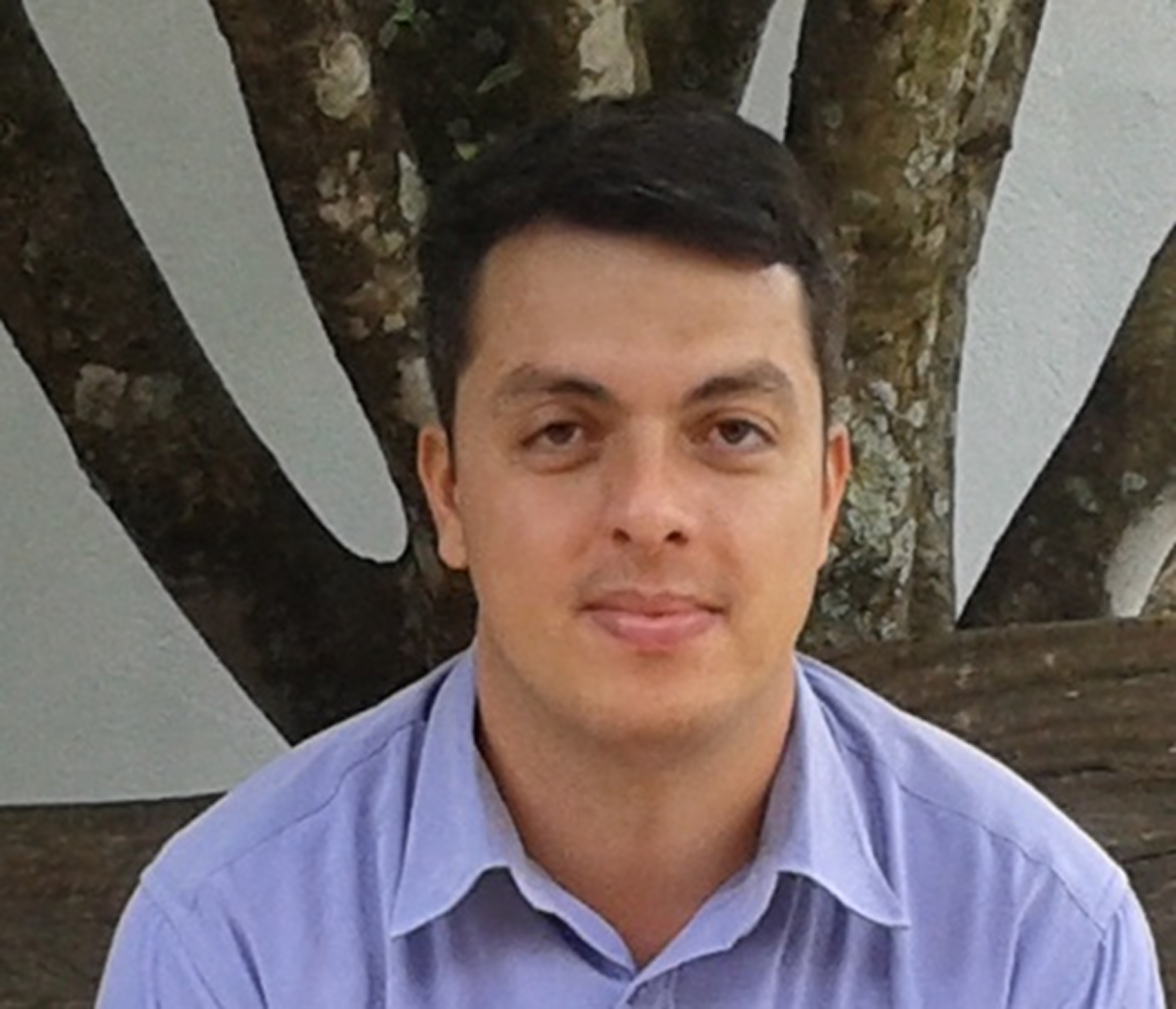
Raphael Augusto de Castro e Melo - holds a Bachelor degree in Agronomy and a M.Sc. in Plant Science from the University of Brasília (UnB). Works as a Research Scientist at the Brazilian Agricultural Research Corporation - Embrapa Hortaliças, Brasília-DF, with different vegetable species focused on cropping systems and their improvement.
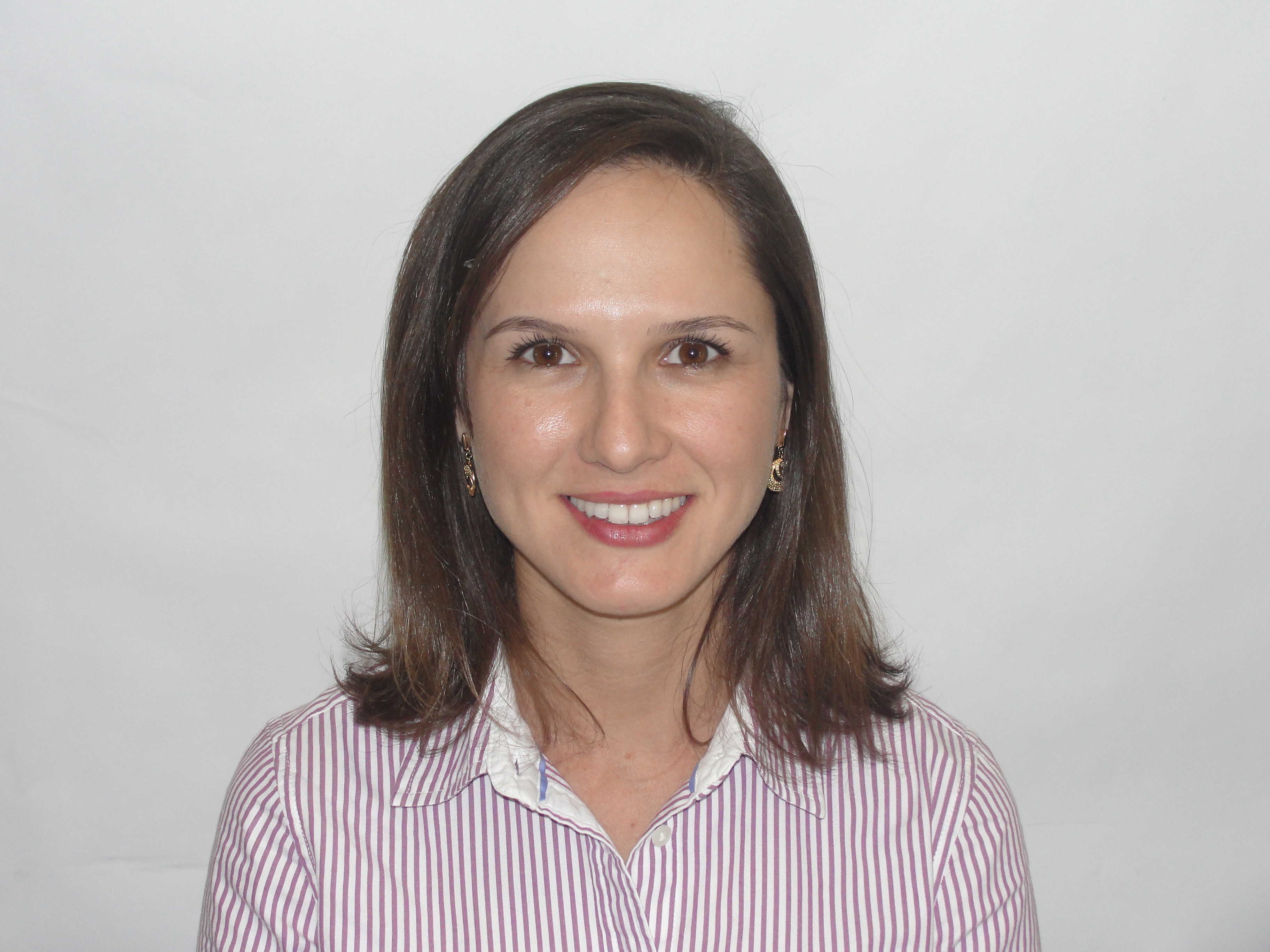
Larissa Pereira de Castro Vendrame - holds a Bachelor degree in Agronomy from the Federal University of Goiás (UFG) and M.Sc. and Ph.D. in Genetics and Plant Breeding. both from the University of São Paulo (USP - Esalq). Works as a Research Scientist at the Brazilian Agricultural Research Corporation - Embrapa Hortaliças, Brasília-DF, as a sweetpotato breeder and a germplasm curator of the brassica and sweetpotato collections.
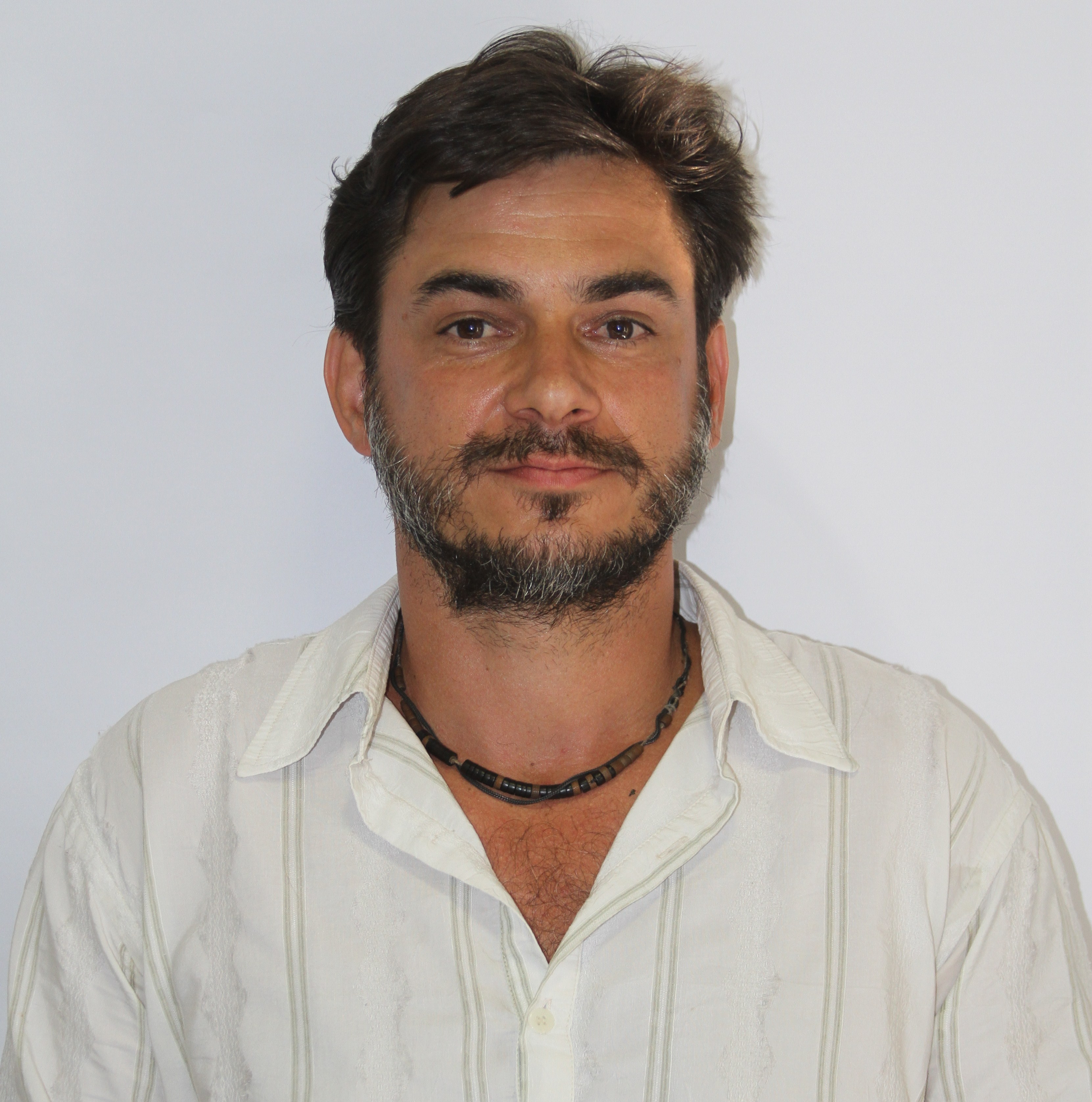
Nuno Rodrigo Madeira - holds a Bachelor degree in Agronomy from Federal University of Viçosa (UFV) and M.Sc. and Ph.D. in Plant Science, both from Federal University of Lavras (UFLA). Works as a Research Scientist at the Brazilian Agricultural Research Corporation - Embrapa Hortaliças, Brasília-DF, with unconventional, native and underutilised vegetable species and no-tillage vegetables, focused on sustainable cropping systems.
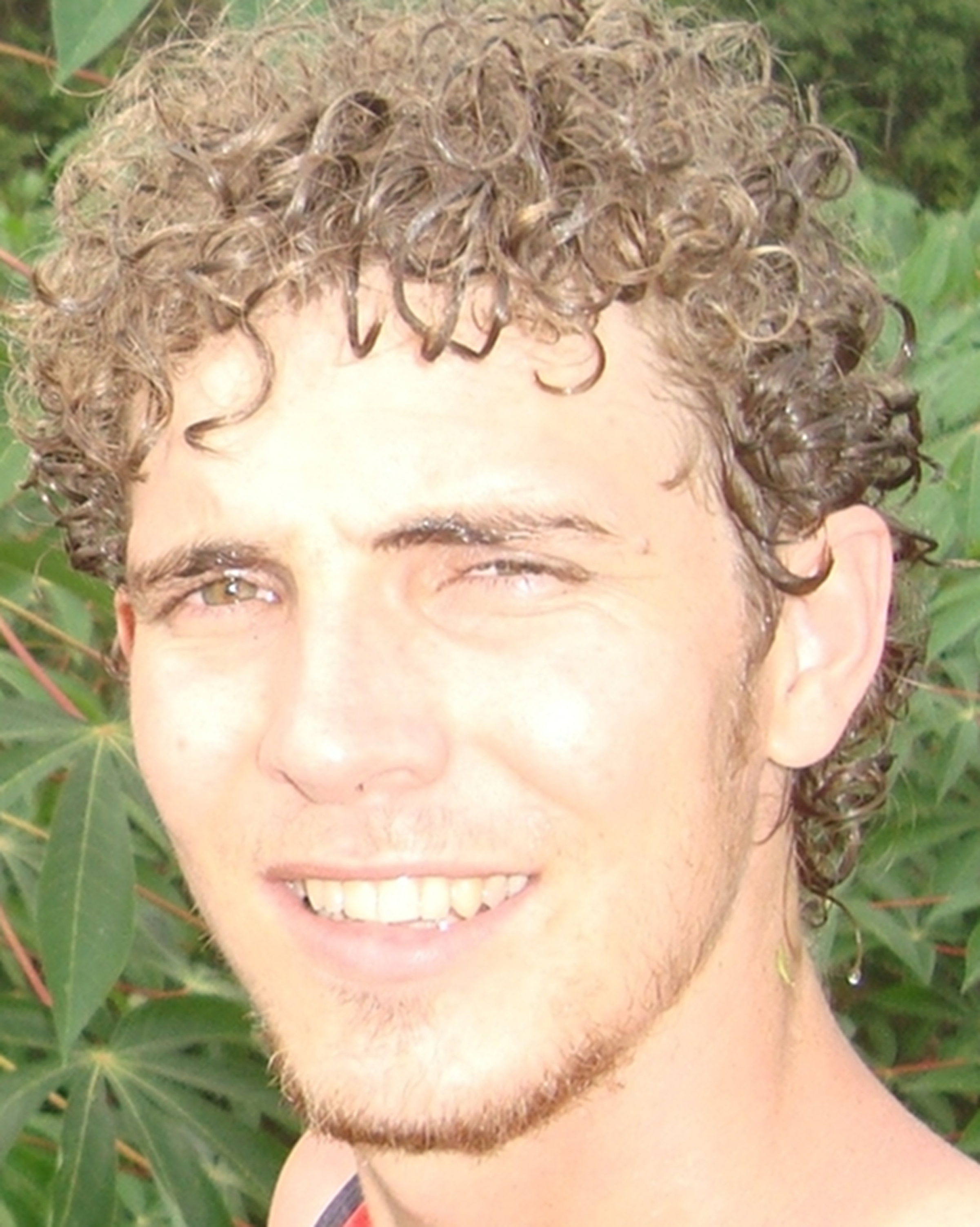
Ariel Dotto Blind - holds a Bachelor degree in Agronomy from Federal University of Amazonas (UFAM), a M.Sc. in Agriculture from the National Institute of Amazon Researches (INPA) and a Ph.D. in Tropical Agriculture from Federal University of Amazonas (UFAM). Works at the INPA - Experimental Station, Manaus-AM. Develops field and laboratory research involving Plant Science - plant selection and technological innovations for agriculture in the Amazonian region.
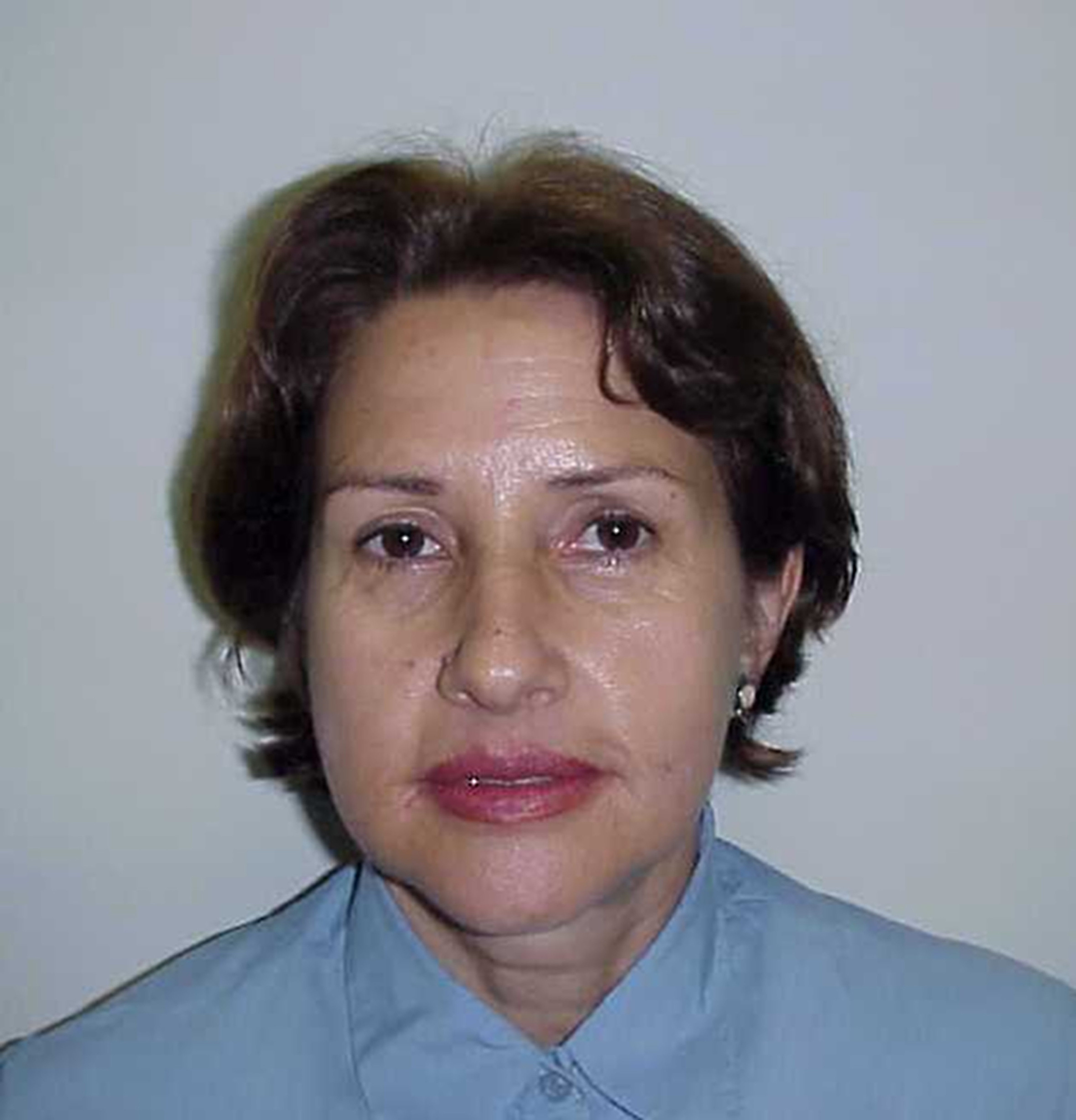
Nirlene Junqueira Vilela - holds a Bachelor degree in Economy from the Federal University of São João Del-Rei and M.Sc. in Applied Economy from Universidade Federal University of Viçosa (UFV). Is recently retired from the Brazilian Agricultural Research Corporation - Embrapa Hortaliças, Brasília-DF, and while affiliated as a Research Scientist,contributed in the field of socioeconomic evaluation of different vegetables chain production
Edição v37 n3 - Julho - Setembro, 2019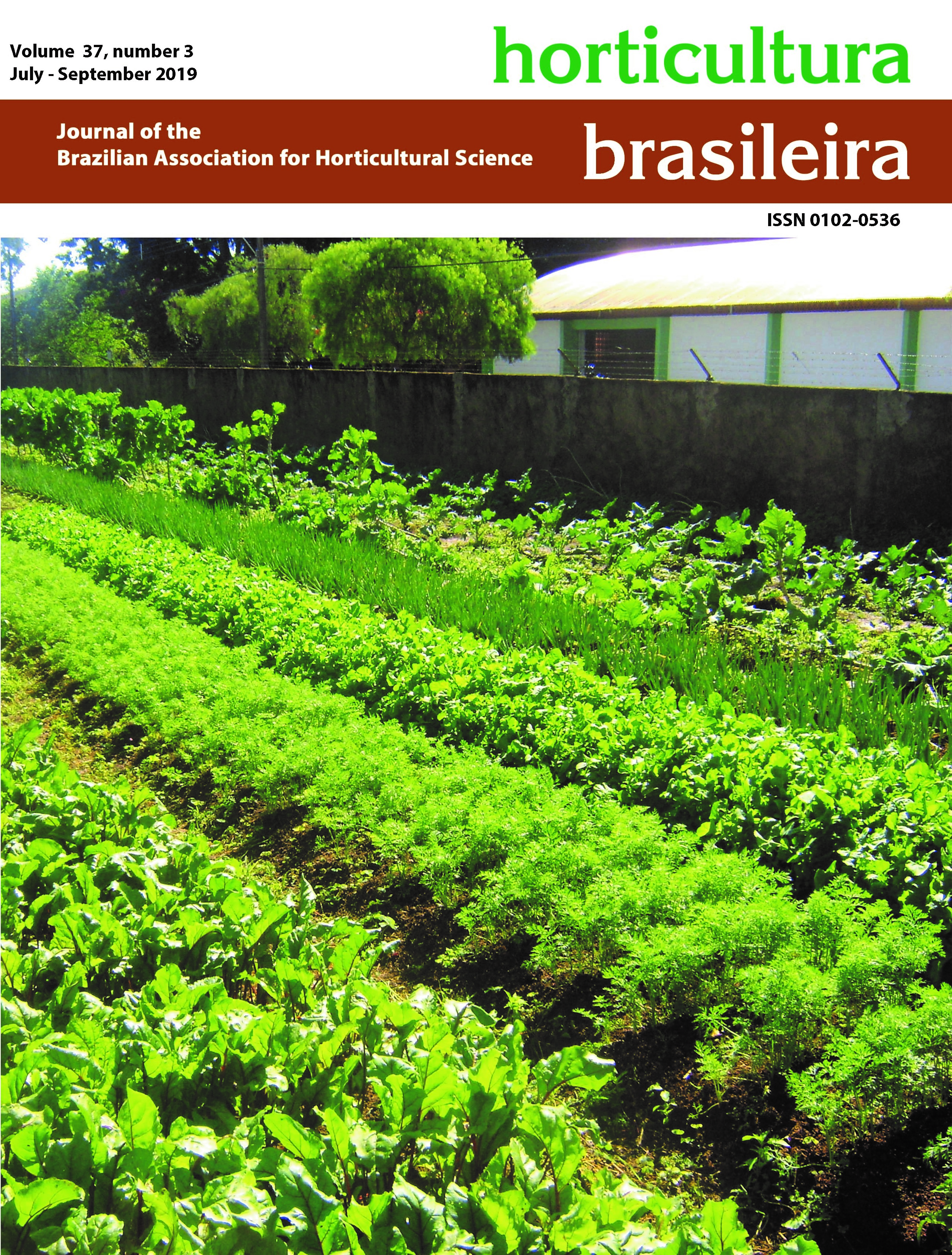
Horta comunitária
Autores convidados
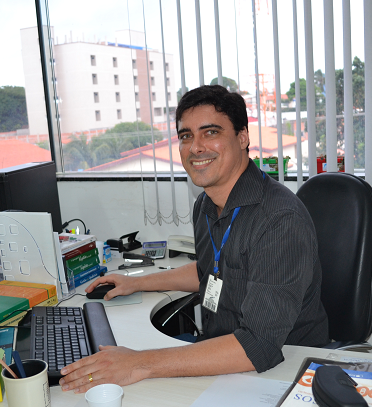
João Flávio Bomfim Gomes - He held his Master in Socio-spatial and Regional Development from the State University of Maranhão (2016), where he lectured on the theme ‘Multifunctionality of Urban Agriculture’. He holds a degree in Architecture and Urbanism from Tiradentes University (2002). Specialist in Urban and Regional Planning, focusing on Regional Development, acting on the following subjects: agroecology, family farming, sustainable agricultural production, urban and periurban agriculture, markets and urban food systems. He is currently an analyst at Embrapa Cocais, located in São Luís-MA and responsible for Impact Assessment and Demand Prospecting and Market activities. He also conducts experiments with Medicinal, Aromatic and Spice Plants and is currently developing socioeconomic studies with emphasis on Analysis and Economic Feasibility of production systems, Socioproductive Diagnosis using participatory methodologies, Analysis of Productive Chains and Economic-Ecological Analysis of Agroecosystems in municipalities of Maranhão.
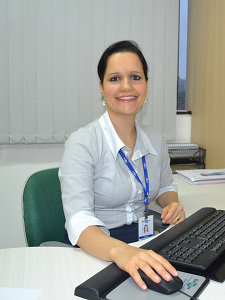
Renata da Silva Bomfim Gomes - Renata is Researcher at Embrapa Cocais. She graduated in Agronomy from the Federal University of Uberlândia (2003). Her Master and PhD were held in Agronomy/Phytotechnics from the Federal University of Lavras (2005 and 2008). She has experience in Agronomy, focusing on Agroecology, Organic Farming, Medicinal, Aromatic and Spice Plants and Family Farming. She is the scientific editor of the magazine Horticultura Brasileira. She is also a Member of the Local Publications Committee. Currently she is developing projects in the areas of Cultivation and Management of Traditional Species and Survey and Socioeconomic and Productive Diagnosis in Agroforestry Yards in four municipalities of Maranhão.

Alex Oliveira - Holds his PhD in Urbanism from Paris Est University (2010), Master in Urban Development from Federal University of Pernambuco (2000) and Architect and Urbanist from Federal University of Paraíba (1993). He is currently Associate Professor IV at the State University of Maranhão (since 1995), Professor of the Graduate Program in Regional Social Development (since 2014). He has served as Chief Executive Officer of the Foundation for Research and Scientific and Technological Development Support of Maranhão (2015-2019) Alternate Federal Counselor of the Council of Architecture and Urbanism of Brazil (2015-2017), Head of the Department of Architecture and Urbanism (2008-2012), Local Coordinator of the Interinstitutional Doctorate in Urbanism at UFRJ/UEMA (2009-2011), Ataché Temporaire d’Enseignement et Recherche [University of Paris-Est (2006-2007)], Director of the Architecture and Urbanism Course at UEMA (2001-2002), Local Coordinator of the Interinstitutional Master in Urban Development UFPE/UEMA (1999-2000), Director of the Conservation and Restoration Division of DPHAP-MA (1995-1996).
Edição v37 n2 - Maio - Junho, 2019
Plant of Zeyheria montana in Brazilian Cerrado and it in vitro cultivation for secondary metabolite production (photo at right corner)
Advances and challenges on the in vitro production of secondary metabolites from medicinal plants
Autores convidados
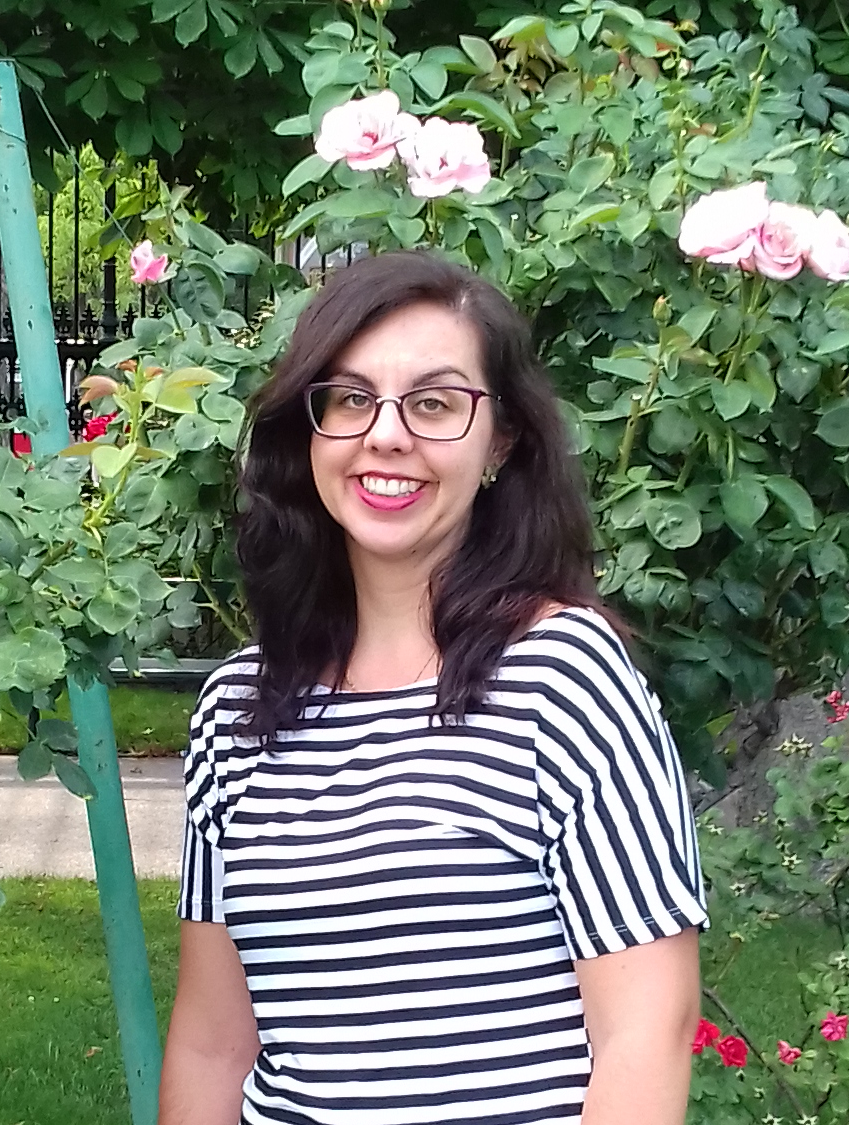
Fernanda de Cássia Israel Cardoso. Nurse graduated from the São Paulo State University Júlio de Mesquita Filho (UNESP, 2004), holding an M.Sc. degree in Nursing from the same institution (UNESP, 2008). Fernanda is currently a doctoral student at the Postgraduate Program of the Faculty of Nursing at the State University of Campinas (Fenf - Unicamp), where she works with wound healing and medicinal plants. She works as an Assistant Nurse in the Department of Community and Student Affairs (DeACE-Ar) of the Federal University of São Carlos (UFSCar), Araras campus.
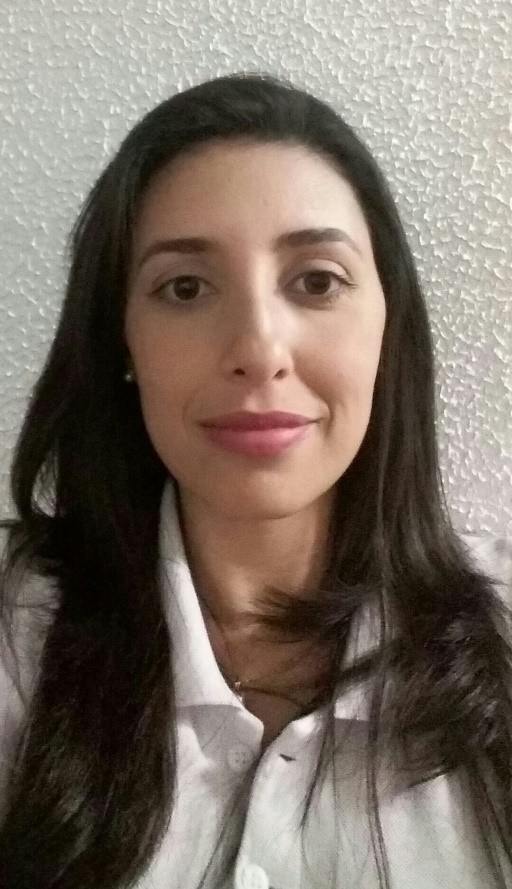
Maria Eduarda de Oliveira is a student of Biotechnology at UFSCAR [Federal University of São Carlos (2019)]. Maria Eduarda works with plant tissue culture, and her research is focused on methods of elicitation of secondary metabolites in medicinal plants. Maria Eduarda is currently a fellow student of Scientific Initiation of the São Paulo Research Foundation [FAPESP (2019)], with the project "In vitro callogenesis as an alternative to phyllantine and hypophyllanthin production in Phyllantus amarus".

Jean Carlos Cardoso is a Full Professor at Department of Biotechnology, Plant and Animal Production, Center of Agrarian Sciences, Federal University of São Carlos. Jean Carlos coordinates the Laboratory of Plant Physiology and Tissue Culture and leads the Research Group in Plant Physiology, Development, and Breeding. Jean Carlos also acts as advisor for undergraduate students in Biotechnology and Agriculture, and M.Sc. students at the Science Program of Plant Production in the same University.
Edição v37 n1 - Janeiro-Abril, 2019
Fruits of experimental strawberry hybrids - Photo by Maíra Machado
Autores convidados

André Ricardo Zeist –André comes from a family of smallholder farmers who grow vegetables. He holds a degree in Agronomic Engineering from the Federal University of Pampa (UNIPAMPA) (2013) and holds M.Sc.and Ph.D. degrees in Agronomy from the State University of the Midwest Paraná (UNICENTRO, 2017). He is currently a professor at the University of the West of São Paulo (UNOESTE) and leader of the university's Research Group on Vegetables (NUPOOP). André works with vegetable breeding and crop technology, mainly in physiology and abiotic stresses.
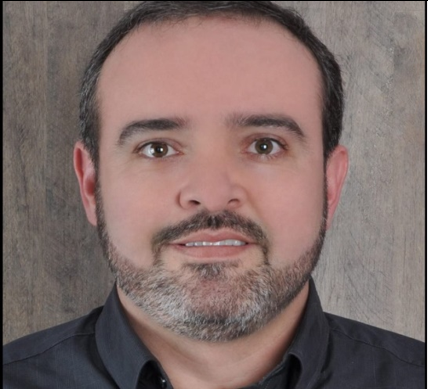
Juliano Tadeu Vilela de Resende – Bachelor in Agronomy from the Federal University of Lavras, Brazil. Doctor in Agronomy (tomato genetic and breeding) by the same university. He has been an undergraduate professor for more than 20 years. Professor and researcher at the State University of Londrina (UEL) and UNICENTRO where he participates as a master's and Ph.D. advisor in graduates program in Agronomy and Bioenergy. Receives continuous research grants from CNPq (level 1D). He develops researches with vegetables, especially with the tomato and strawberry breeding. In 2011 he started a strawberry genetic breeding program. This breeding program is advanced, with the possibility of launching new cultivars adapted to the edaphoclimatic conditions of Brazil within two to three years.
Edição v36 n4 - Outubro-Dezembro, 2018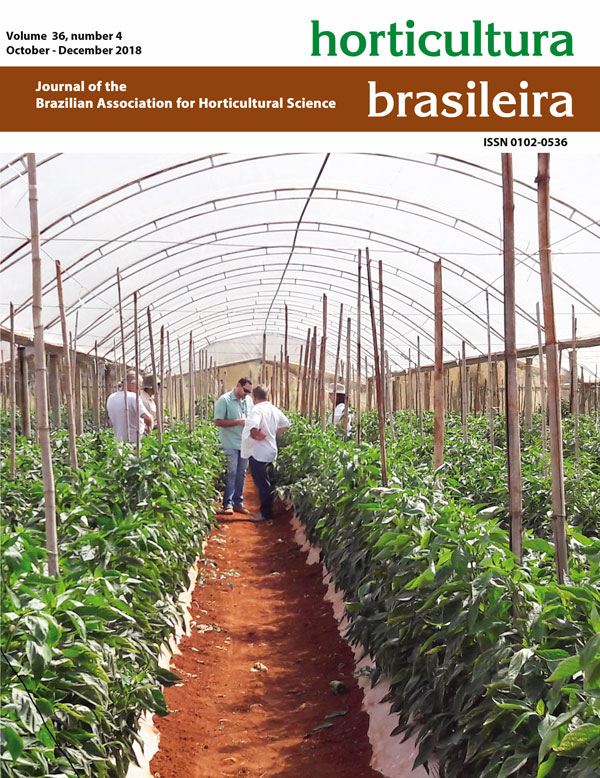
Autores convidados
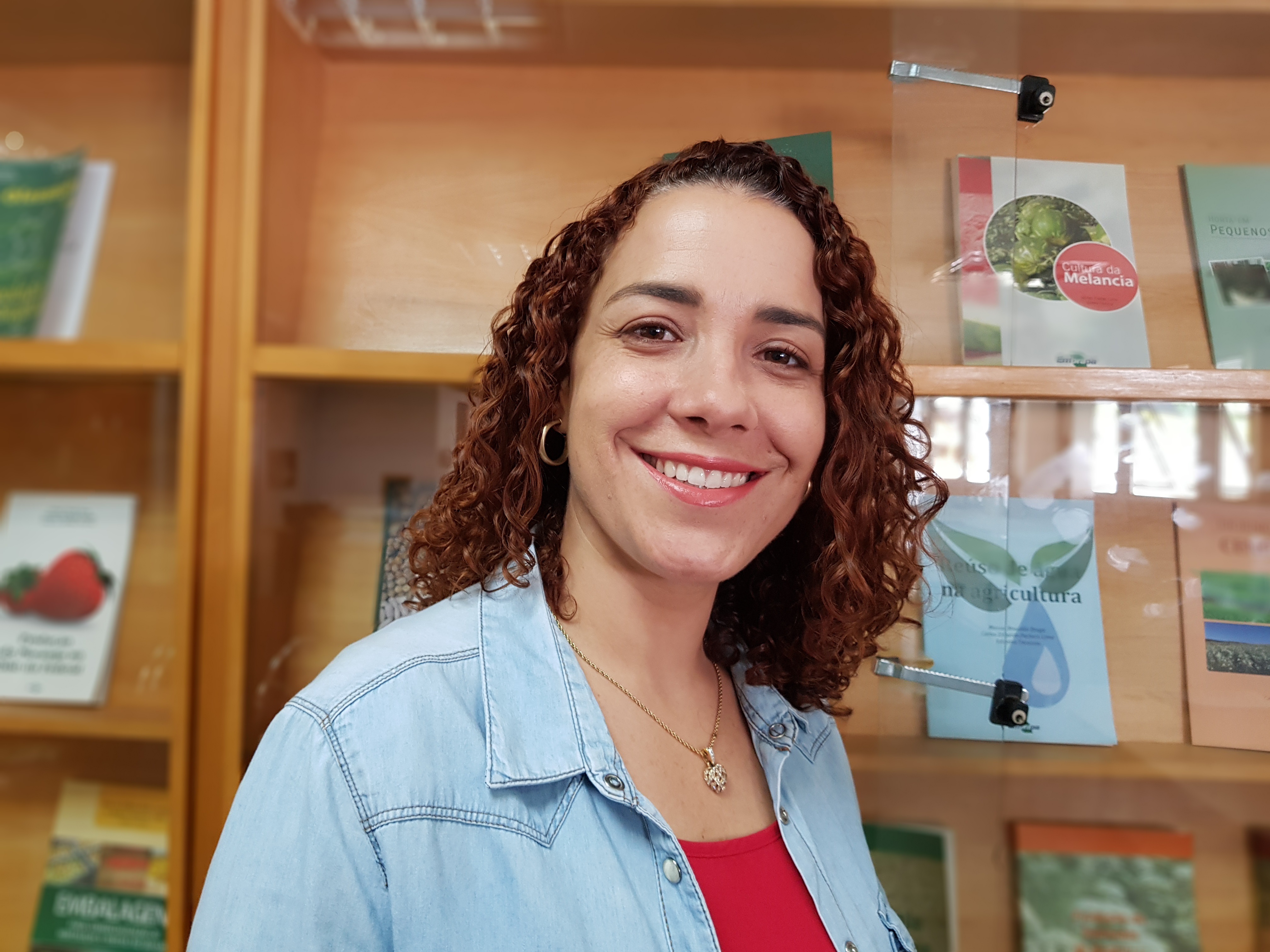
Débora de Faria Albernaz Vieira is agronomic engineer from Universidade de Brasília (2004), received her M. Sc. degree in Agribusiness from Universidade de Brasília (2008), with her research focused on the commercialization of Family Agriculture. Has experience as analyst of Embrapa Hortaliças in the area of demand prospecting and technology transfer for the productive chain of vegetables. Has already worked in the execution and evaluation of public policies to support commercialization and rural credit for Family Agriculture.
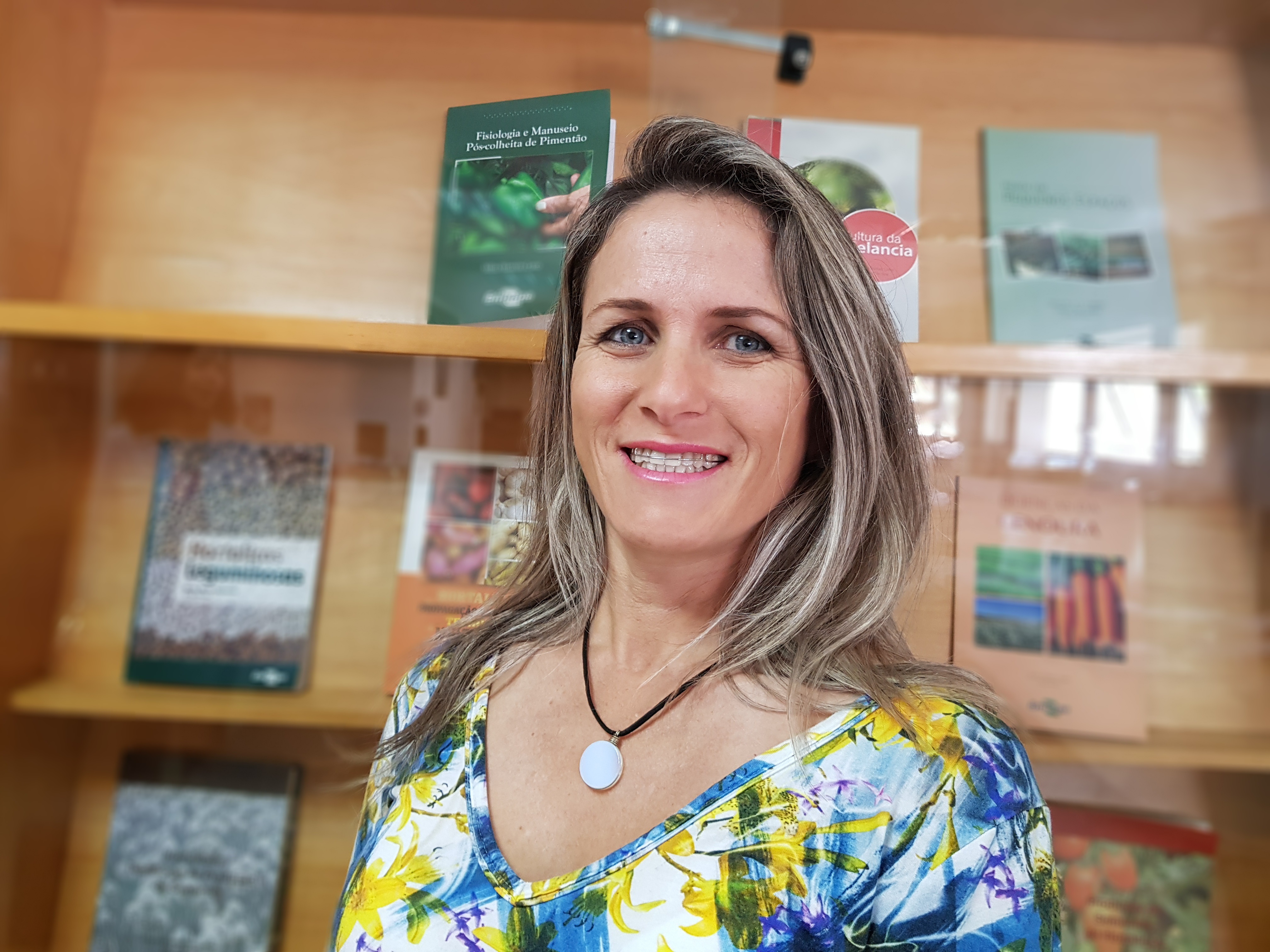
Flávia Maria Vieira Teixeira Clemente Agricultural Engineer graduated from Universidade Federal de Lavras (2001) and M.Sc. degree, with concentration in Plant Science (2005). She received her Ph.D degree in Plant Production at the Universidade Federal de Goiás (2010). She currently works in the supervision of Embrapa Hortaliças' Technology Prospecting and Evaluation Sector. This activity led to the need to develop this research on the profile of vegetable producers in the Federal District.
Edição v36 n3 - Julho-Setembro, 2018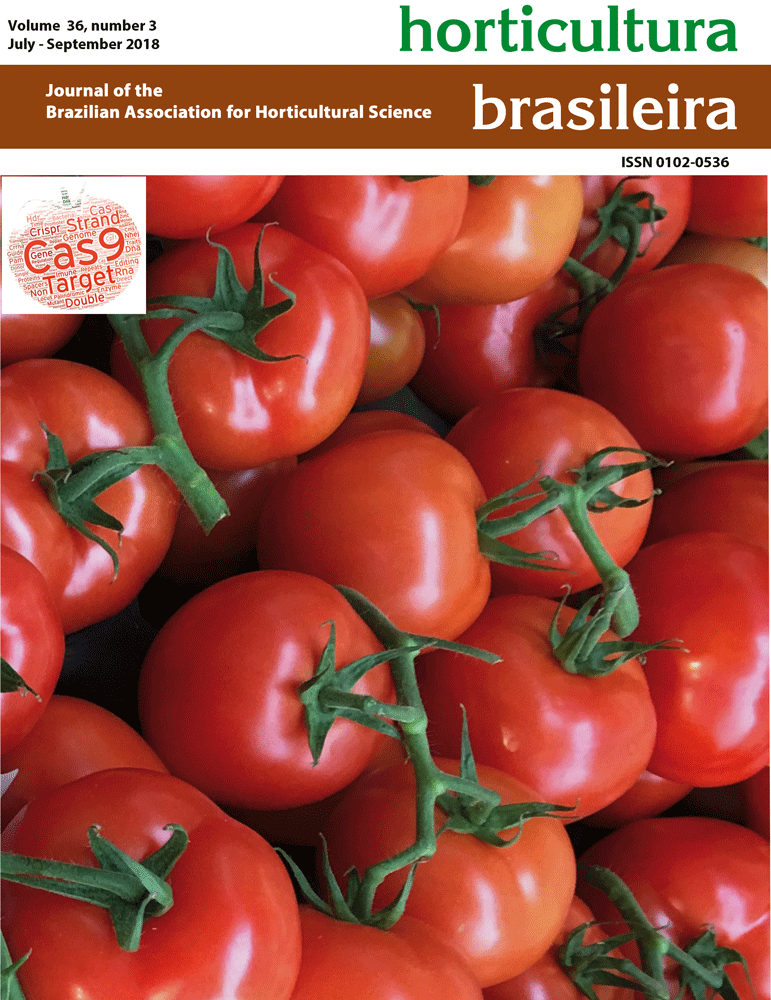
Autores convidados
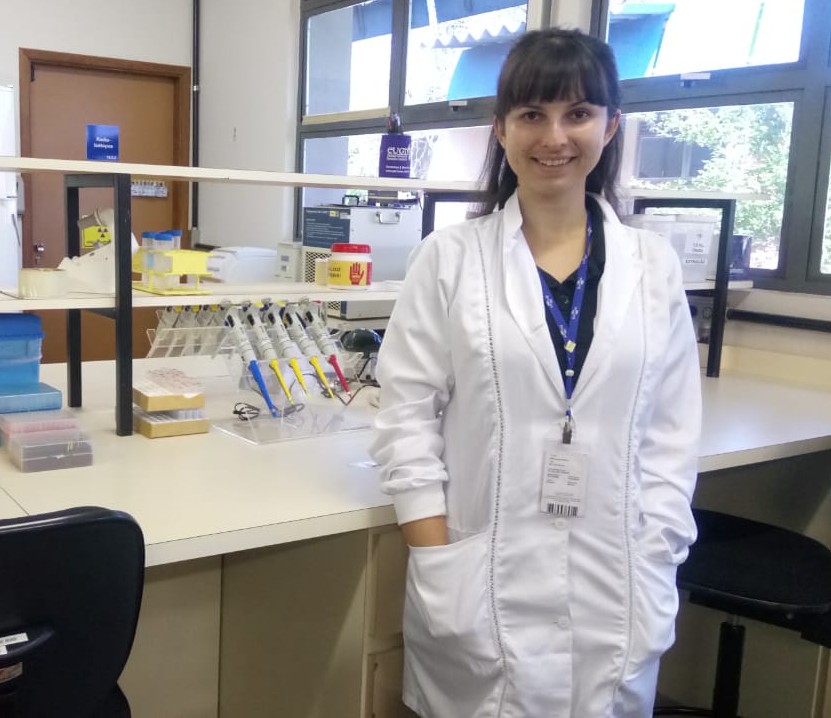
Alessandra Koltun holds a B.Sc. degree in Agronomy [Universidade Estadual de Londrina (UEL), 2012], with one semester abroad at University of Arkansas (UARK, 2010), and one additional year at Newcastle University (NU, 2013). In this period, she worked with maize breeding (research and rural extension) and soil microbiology. She received an M.Sc. degree from the Center for Nuclear Energy in Agriculture [Universidade de São Paulo (CENA-USP), 2016] in Biotechnology, characterizing genes involved in nitrogen use efficiency in sugarcane. She is currently a Ph.D. student in Genetics and Plant Breeding at UniversidadeEstadual de Maringá (UEM, 2017), developing her thesis at Embrapa Soja, focusing on soybean genome editing using the CRISPR/Cas technology.
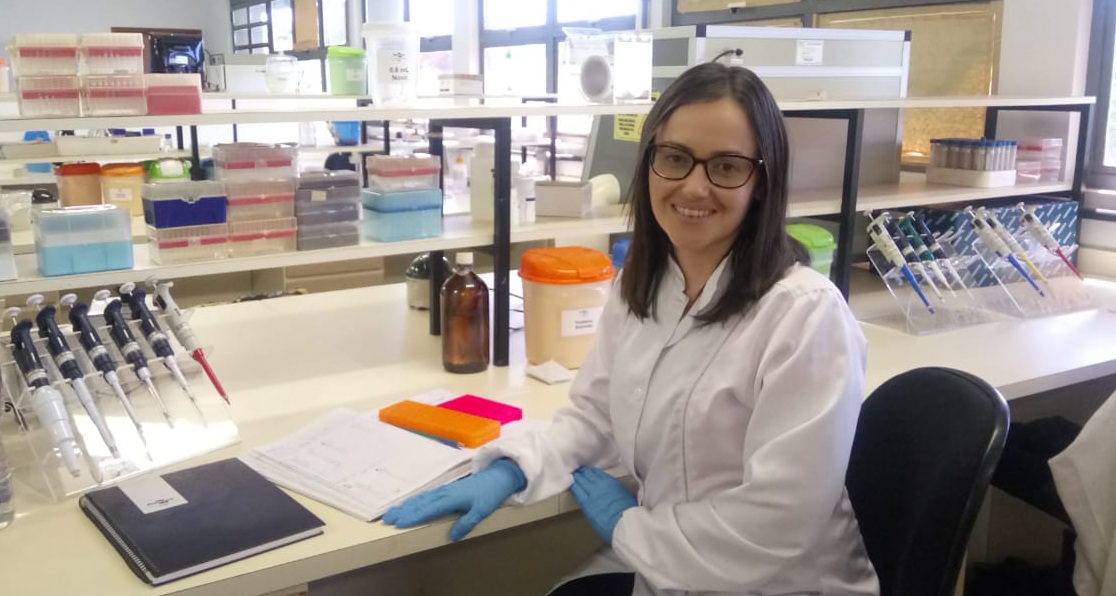
Lígia Erpen-Dalla Corte received a B.Sc. degree in Agronomy in 2010, followed by an M.Sc. degree in Agronomy in 2013 , from Universidade Federal de Santa Maria. In this period, she worked with strawberry production systems in soil and hydroponic cultivation and sweet potato production. She received her Ph.D. degree in Science/Crop Production in 2017, from Luiz de Queiroz College of Agriculture [Universidade de São Paulo (USP)], focusing on citrus genetic transformation, with a nine-month internship at the Citrus Research and Education Center, University of Florida. Currently, she is a post-doctoral student at Embrapa Soja, primarily focused on soybean genome editing using the CRISPR/Cas technology.
Liliane Marcia Mertz-Henning holds a B.Sc. degree in Agronomy from Universidade Estadual de Santa Catarina (UDESC, 2004). She received her M.Sc and Ph.D. degrees in Seed Science and Technology with focus on Biotechnology from Universidade Federal de Pelotas (UFPel, 1010). From 2011 to 2013, she was professor at Universidade Federal de Santa Maria (UFSM) and, in 2013,she was also a visiting researcher at JIRCAS (Japan International Research Center for Agricultural Sciences). Currently, she is researcher scientist at Embrapa Soja, member of the Ecophysiology and Plant Biotechnology Laboratory. She works in developing and characterizing soybean genetically modified plants to tolerance to abiotic stresses. Additionally, she is working in soybean genome editing using the CRISPR/Cas technology.
Leandro Simões Azeredo Gonçalves holds a B.Sc. degree in Agronomy [Universidade Federal Rural do Rio de Janeiro (UFRRJ)] and M.Sc. and Ph.D. degrees [UniversidadeEstadual do Norte Fluminense Darcy Ribeiro (UENF)] in Genetics and Plant Breeding. Currently, he is professor at Universidade Estadual de Londrina (UEL) and coordinator of the Ecophysiology and Agricultural Biotechnology Laboratory (LEBA – UEL). He works in Genetics and Plant Breeding, mainly on abiotic stress (maize, soybean and common bean) and vegetable breeding (tomato, pepper, and snap bean).
Edição v36 n2 - Abril-Junho, 2018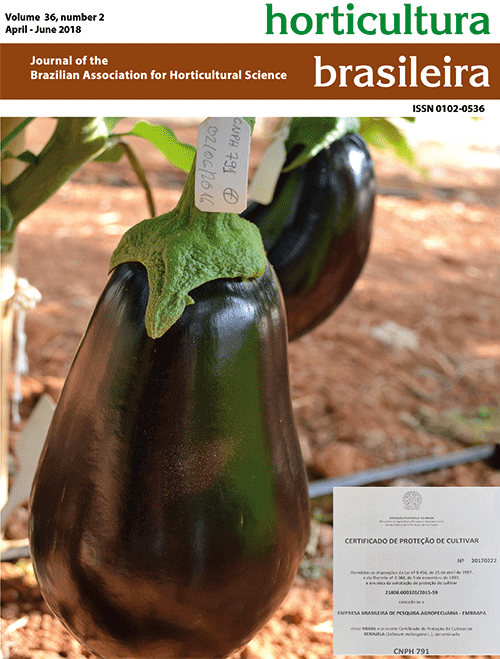
Autores convidados
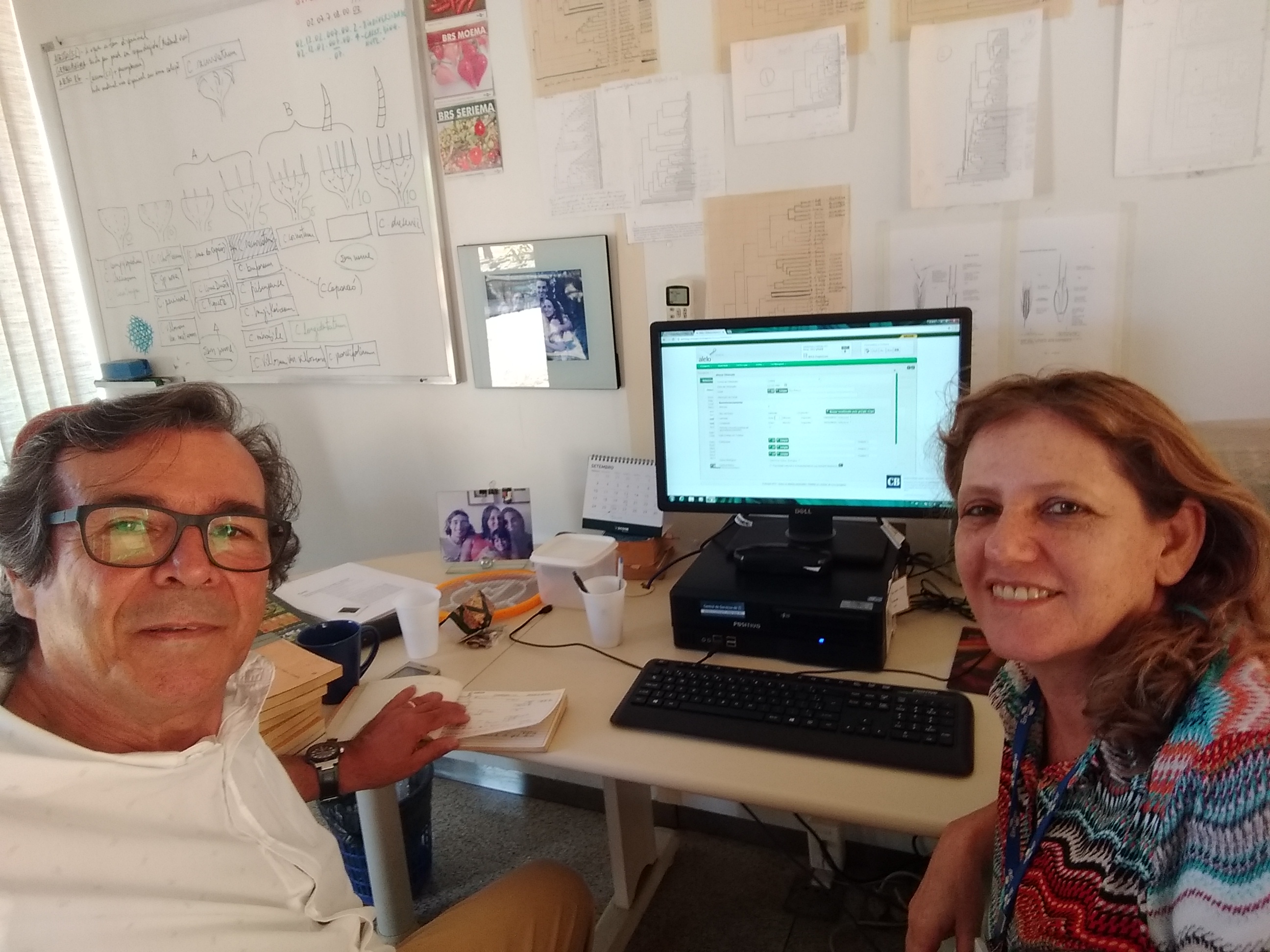
Photo: Luciano B Biancheti & Sabrina IC carvalho
Sabrina Isabel Costa de Carvalho has a degree in Agronomy from the University of Passo Fundo (1987), a Master's degree in Animal Science from the Federal University of Viçosa (1993) and a DSc in Agronomy (Genetic Resources and Plant Breeding, 2014) from the University of Brasília. She is currently an analyst at the Brazilian Agricultural Research Corporation, EMBRAPA. Sabrina has a vast experience of research in the area of Genetic Resources and Genetic Improvement of Plants, concentrating her work on pepper, eggplant, tomato and garlic crops. At Embrapa Vegetable Crops, she leads work on molecular characterization, conservation and documentation of germplasm, registration and protection. She has published extensively, including several research articles, book, and book chapters. She has participated in the development of several cultivars in partnership with private sector companies. She is a CNPq Fellow and received the University of Brasilia 2015 Doctorate Thesis Award.
Luciano de Bem Bianchetti graduated in Biological Sciences, concentration in Ecology, in 1980, and in Botany, in 1981, from the University of Brasília, and obtained his MSc in Botany, 1996, from the University of Brasilia. He has been part of the cadre of researchers, since 1983, at the National Center for Genetic Resources and Biotechnology, EMBRAPA / CENARGEN. He was responsible for the Germplasm Exploration and Collection Area, from 1986 to 1988, and led projects and subprojects of Germplasm Collection and Phytogeographical and Biosystematic Studies between 1998 and 2002. He was responsible for the pineapple germplasm collection project (Ananas spp., 1988 to 1991), peppers (Capsicum spp., since 1986), among others (ornamental plants). He was curator of the Herbarium CEN, from 1986 to 1989, and curator of the Capsicum pepper and Ornamental Plants. His work focuses on the Genetic Resources of pepper (Capsicum spp.) and ornamental plants (especially Orchidaceae) with emphasis on the collection and characterization of germplasm.
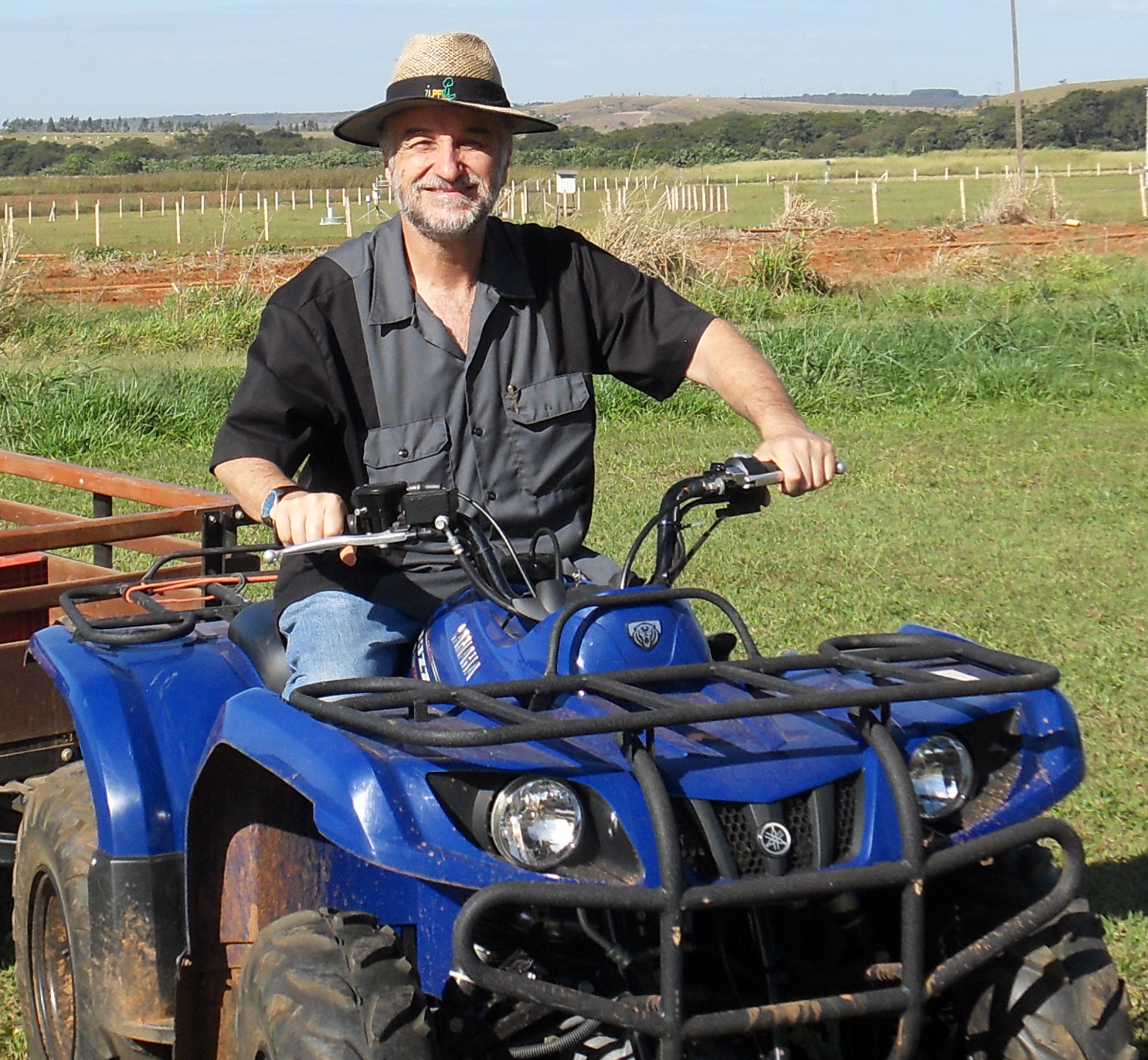
Photo: Francisco JB Reifschneider
Francisco José Becker Reifschneider (B.Sc. in Agriculture, UnB; Ph.D. in Plant Pathology, UW-Madison, 1979). His contribution to the development of agriculture brought him to the 2012 edition of the Marquis Who's Who in the World. He worked on the development of disease resistant vegetables releasing cultivars that cover significant acreages in Brazil; lectured, advised or co-advised students from UnB, Cornell, USP-ESALQ; UFRRJ, and UENF; published widely; and was granted the Frederico de M.Veiga Award, the Santos Costa Award, and the Jabuti Award, for his book on Capsicum. He was the technical and director general of Embrapa Vegetables; organized/headed the Secretariat for International Cooperation (SCI, now SRI) in Embrapa; agricultural officer of the World Bank-FAO Cooperation Program, in Rome (91/95); and World Bank Director (CEO) of the Consultative Group on International Agricultural Research, in Washington, DC (2001/07); special advisor to the Brazilian minister of agriculture (2008/2010) and to Embrapa’s president (2009-2012). He was the founder and Editor-in-Chief of the Journal Horticultura Brasileira as well as Embrapa’s technical magazine XXI-Science for Life. Currently, he is a researcher at SPD/Embrapa, where he serves as the focal point for the international cooperation platform “Agricultural Innovation Marketplace” (www.mktplace.org) and develops his Capsicum breeding work, at Embrapa Vegetables; and is a CNPq Research Fellow.
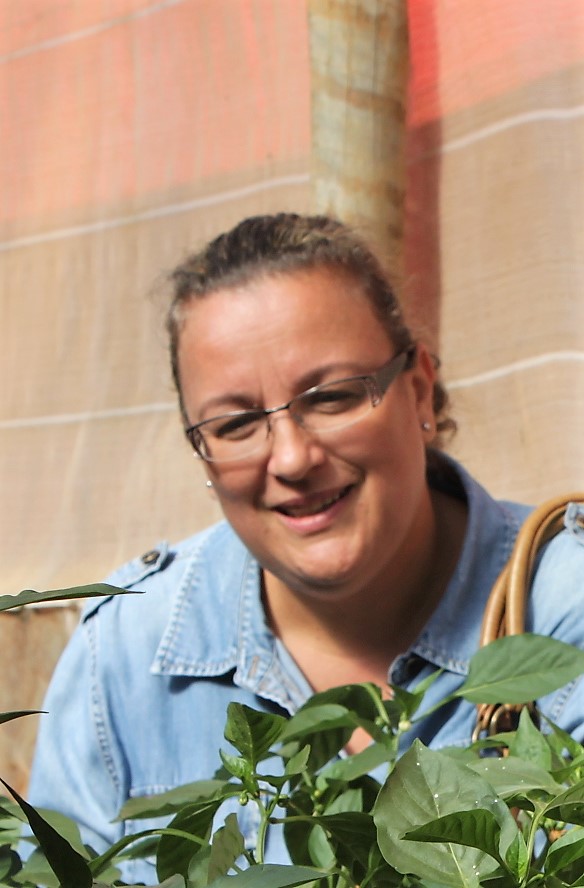
Photo: Cláudia SC Ribeiro
Cláudia Silva da Costa Ribeiro holds a B.Sc. degree in Agronomic Engineering (1987) and M.Sc. degree in Genetics and Plant Breeding (1992) from the University of São Paulo; and PhD in Genetics and Plant Breeding by the New Mexico State University, USA (2011). She is currently a researcher at the Brazilian Agricultural Research Corporation – Embrapa, working in genetic breeding of peppers (Capsicum sp.) Claudia Ribeiro’s experience in Genetics and Plant Breeding is concentrated in breeding of hot and bell peppers, genetics resources of Capsicum spp., plant resistance to diseases and pepper industrial processing. She leads the Capsicum breeding program of Embrapa Vegetables and is responsible for the development of several cultivars and hybrids for industrial processing as results of projects in partnership with the private sectors (BRS Brasilândia, BRS Ema, BRS Sarakura and BRS Garça), and other hot pepper cultivars that are available in the Brazilian market (BRS Mari, BRS Moema, BRS Seriema, BRS Juruti and BRS Nandaia). She leads the project “New chillies and peppers for the Brazilian agriculture” (Embrapa’s Macroprogram 2), as well as projects also dealing with chillies and bell peppers in partnership with Nigeria, Togo and Uganda, sponsored by the Agricultural Innovation Marketplace; and a Habanero and Malagueta breeding project funded by National Council for Scientific and Technological Development (CNPq).
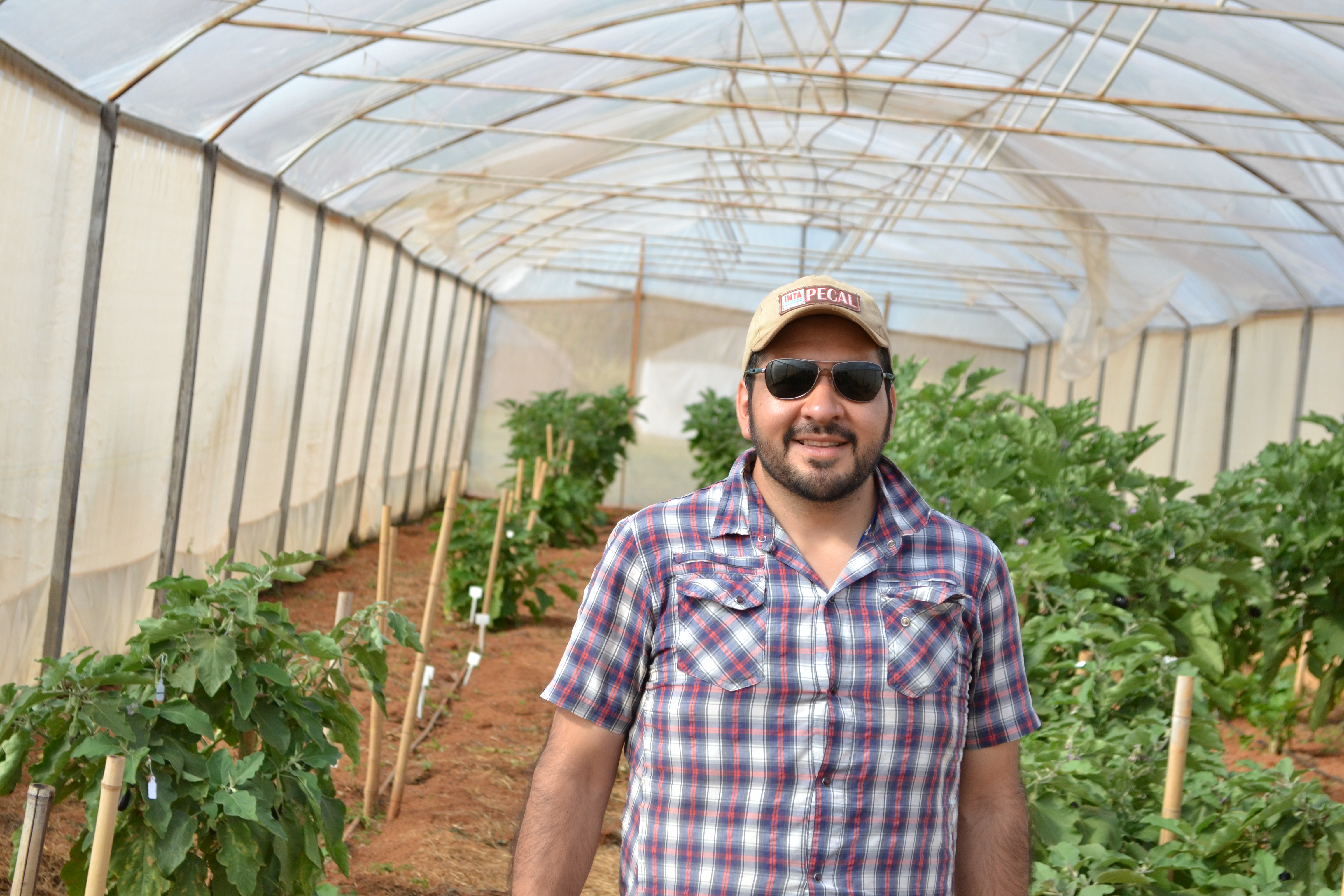
Photo: Rancisco L Fernandez
Francisco Lionel Fernández (Agronomist, graduated from Universidad del Salvador, Gdor Virasoro, Province of Corrientes, Argentina. He worked as a collaborator in various areas of research in crops such as Stevia, cassava and forages of high nutritional value at the Universidad del Salvador. He obtained a scholarship to finish his training at UnB, Brasilia. As a trainee at EMBRAPA Vegetable Crops in 2015, he carried out vegetable germplasm-related research and maintenance work. He currently serves as Delegate of the Ministry of Agriculture of the Province of Chaco (Argentina) and works as a private consultant in extensive cropping.
Edição v36 n1 - Janeiro-Março, 2018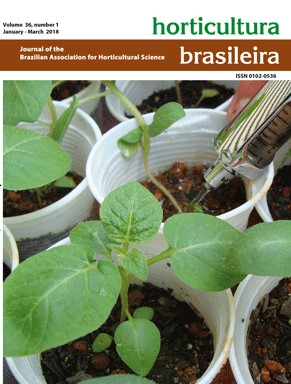
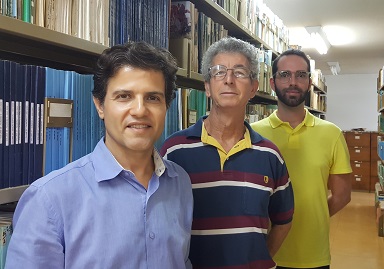
Photo: Paulo Eduardo de Melo (left) Carlos Alberto Lopes and Maurício Rossato (right)
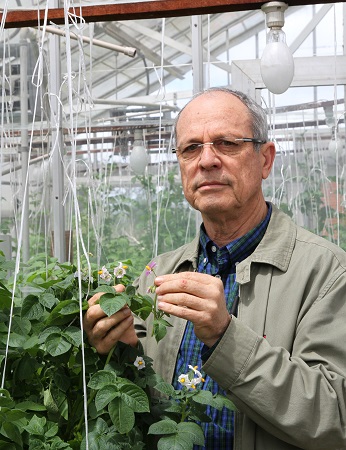
Photo: Arione da Silva Pereira
Autores convidados (mini currículo)
Carlos Alberto Lopes is a Plant Pathologist at Embrapa Hortaliças, in Brasilia, since 1977. He received his B.Sc. degree in Agronomy from the Federal University of Viçosa, Brazil, in 1973; his M.Sc. degree from the University of Wisconsin, in Madison, USA, in 1977; and his Ph.D. degree from the University of Florida, in Gainesville, USA, in 1986. Carlos Lopes’ career is devoted to the knowledge of the plant pathology principles aiming at the practical control of vegetable diseases. His main research interests are on bacterial wilt of solanaceous crops caused by the Ralstonia solanacearum complex species. He has been involved with teaching at the University of Brasília and the Federal University of Viçosa. He was the Technical Director of Embrapa Hortaliças from 2006 to 2008 and a member of the Agronomy Committee of the National Council for Scientific and Technological Development (CNPq) from 2006 to 2009, acting as its Coordinator for three years. Additionally, he was a member of the board of the Brazilian Phytopathological Society (1995-1999) and contributes as editor to Horticultura Brasileira since 2000. Author of hundreds of scientific and technical papers, books and book chapters, Carlos Lopes was also granted awards from the Brazilian Phytopathological Society, as well as from extension services and from potato and tomato growers’ associations.
Paulo Eduardo de Melo holds a B.Sc. degree in Agriculture [Federal University of Goiás (UFG)] and M.Sc. (UFG) and Ph.D. (Wageningen University) degrees in Genetics and Plant Breeding. He works on potato breeding for nearly 30 years and takes part of Embrapa’s potato research team, which has been regularly releasing potato cultivars to the Brazilian market in the last decade. Lately, he is concentrating his research activities in assisting the potato germplasm breeding for resistance to bacterial wilt and in the development of potato cultivars oriented to organic farming. He also works in international technical cooperation in agriculture and capacity strengthening, in addition to his duties as editor-in-chief of Horticultura Brasileira. He authored several scientific papers, technical publications, books, and book chapters, and was granted the Brazilian Society for Horticultural Science Award for his studies on the use of male sterility for the development of cabbage hybrids and, later, the Marcílio Dias Award, for his contributions to the progress of horticultural sciences and vegetable crops in Brazil. Currently, he is a researcher at Embrapa’s Secretariat of Research and Development, working in the Division of Program and Asset Monitoring.
Maurício Rossato holds a degree in Agriculture (Faculdade da Terra de Brasília) and M.Sc. (Federal University of Viçosa) and D.Sc. degrees in Plant Pathology (University of Brasília). Currently, he teaches Plant Pathology and Agricultural Microbiology at the Agriculture College of UPIS (Integrated Colleges). He has experience on bacterial wilt caused by Ralstonia species, having collaborated with breeding projects focused on both host resistance and pathogen molecular characterization. He also works with phylogenetic studies of plant pathogens, for the identification and characterization of newly found plant diseases.
Arione da Silva Pereira holds a B.Sc. degree in Agriculture (Federal University of Pelotas - UFPel), a M.Sc. degree in Horticulture (University of California, Davis), and a Ph.D. in Horticulture/Plant Breeding (University of Guelph). He leads the Embrapa’s potato breeding program since 2004, being directly involved in the release of several cultivars for fresh market and processing. He is also professor at the graduation in Agriculture/Plant Breeding at UFPel, where he advised or co-advised several students. He authored several scientific papers, technical publications, books, and book chapters. Currently, he is a researcher at Embrapa, in Pelotas, a research fellow of the National Council for Scientific and Technological Development (CNPq), and a member of the Advisory Council of the Brazilian Potato Association (ABBA).
Edição v35 n4 - Outubro - Dezembro, 2017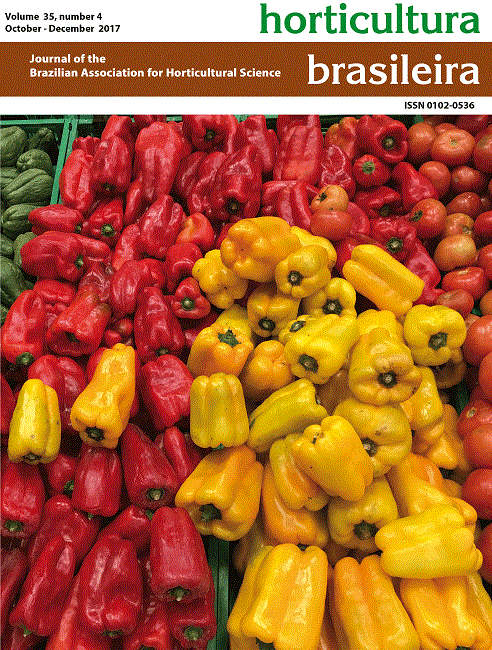
Food losses and waste: how Brazil is facing this global challenge?
Autores convidados (mini currículo)
Gustavo Porpino (left) and Gilmar P Henz (right)
Gilmar P Henz holds a B.Sc. degree in Agronomy (1982) from the Federal University of Rio Grande do Sul (UFRGS) and M.Sc. and Ph.D. degrees in Plant Pathology (1986 and 2001) from University of Brasília (UnB). He started his career as a researcher in Postharvest Pathology at the Brazilian Agricultural Research Corporation – National Center for Vegetable Crops Research (Embrapa Vegetables) in 1989. His research interests included Plant Pathology, Postharvest Technology and Horticulture, with short-period trainings in Hungary (potato production, AgroInvest), Peru (potato soft rot, Intl. Potato Center), Japan (postharvest of vegetable crops, JICA), South Korea (Capsicum breeding, RDA) and Taiwan (Capsicum anthracnose, AVRDC). He was Editor-in-Chief of the journal Horticultura Brasileira from 1990 to 1997. Author of scientific and technical papers, books and book chapters, Dr. Henz was also the Head of Communication and Technology Transfer of Embrapa Vegetables from 2004 to 2008. From 2010-2014, he was appointed as Agricultural Attaché to the Brazilian Embassy in South Africa. From 2014-2015, he worked with sanitary and phytosanitary negotiations at the Brazilian Ministry of Agriculture, Livestock and Food Supply (MAPA). Currently, he is a researcher working with Food Losses and Waste at the Secretariat of Intelligence and Macro Strategy, Embrapa Headquarters.
Gustavo Porpino, a communications analyst at the Brazilian Agricultural Research Corporation (Embrapa), is a journalist and anti-food waste advocate. He received his Ph.D. in Marketing from Getúlio Vargas Foundation (São Paulo, Brazil), and was a visiting scholar at Cornell University. He also holds a Graduate Diploma in Business from Queensland University of Technology (Brisbane, Australia). His studies received attention from several media outlets such as BBC, Huffington Post, Washington Post, Money Magazine, the Food Network, Women’s Health, Globo TV and CBN radio. He received an award for his paper on consumer food waste at the International Food Marketing Research Symposium 2015. He has been working for Embrapa since 2006 and he is currently leading an awareness-raising campaign to mitigate consumer food waste in Brazil. In his spare time, he enjoys cooking new recipes with his wife and saving leftovers.
Edição v35 n3 - Julho - Setembro, 2017
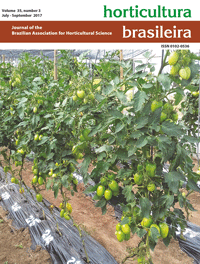
Autores convidados (mini currículo)
Alessandro Dal’Col Lúcio (left) and and Bruno Giacomini Sari (right)
Alessandro Dal' Col Lúcio - holds a degree in Agronomy Engineering from the Federal University of Espírito Santo (1995), MSc degree in Agronomy from the Federal University of Santa Maria (1997), and a Dr in Agronomy from the State University of São Paulo Júlio de Mesquita Filho, Jaboticabal, Brazil (1999). Post-doctorate at the Polytechnic Institute of Bragança, Portugal (2015). He is a titular professor in Crop Science Department of the Federal University of Santa Maria, Rio Grande do Sul State, Brazil, and is the leader of the "Experimentation" research group registered with CNPq. He has expertise in Probability and Statistics, with emphasis on Experimentation, working mainly on the following topics: probability, experimental planning and analysis, experimental precision, sampling, variability, linear and nonlinear regression models, vegetables and protected environment.
Bruno Giacomini Sari - graduated in Agronomy Engineering (2012) and MSc in Agronomy (2015) from Federal University of Santa Maria (UFSM). He carried out research with the Phytosanitary Defense Department of UFSM during graduation. Currently works in statistics, with emphasis on experimentation in Crop Science Department of UFSM. Has expertise in experimentation, working on the following topics: probability, sampling, experimental planning, linear and nonlinear regression analysis.
Edição v35 n2 - Abril - Junho, 2017
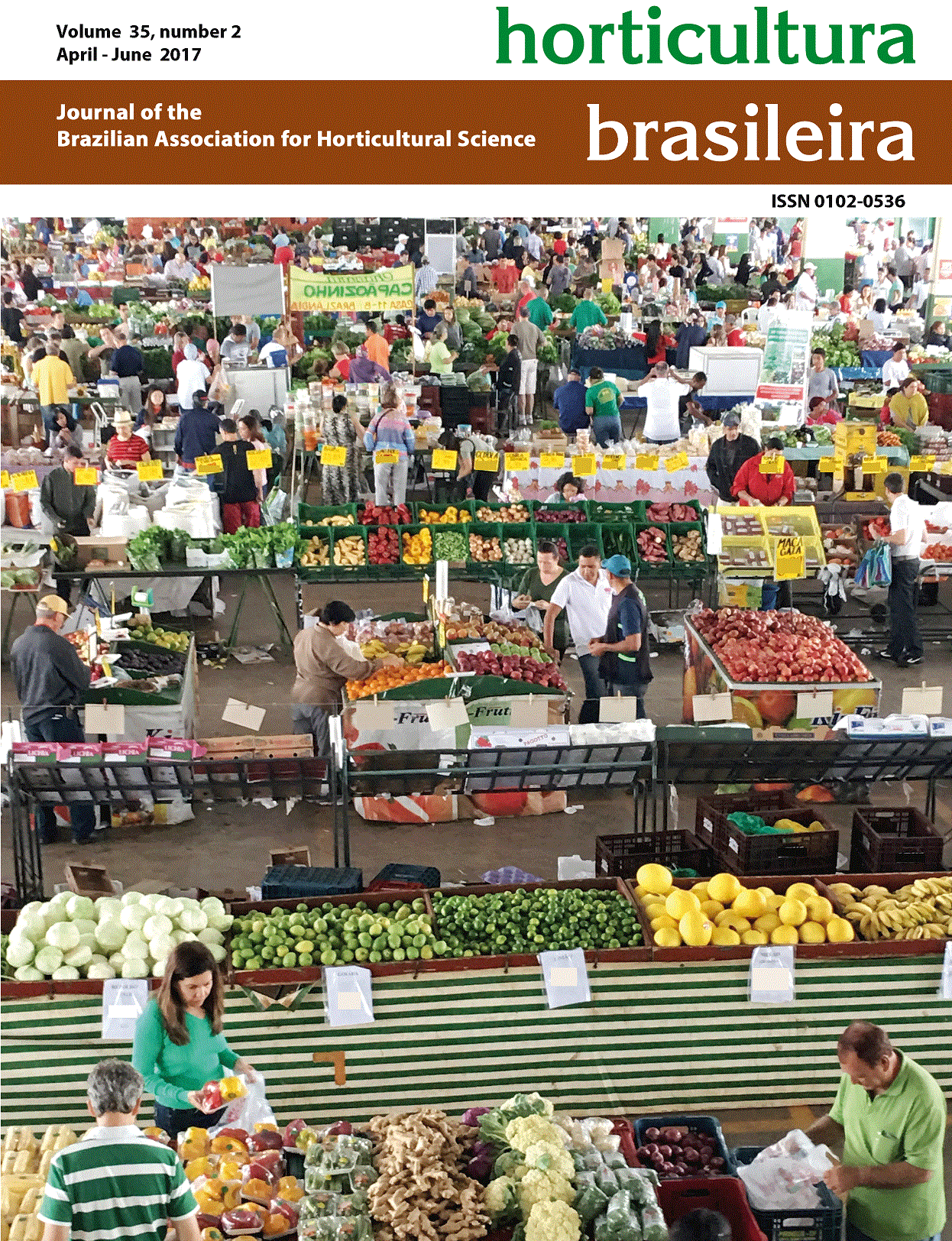
Autores convidados (mini currículo)
Waldemar P Camargo Filho (left) and Felipe P Camargo (right)
Waldemar Pires de Camargo Filho - holds a degree in Agronomic Engineering, from the University of São Paulo (USP-ESALQ) (1973) and the Master’s degree in Agrarian Economics (1982), defending the dissertation entitled "Onion production and commercialization in Brazil". He is currently working at the Institute of Agricultural Economics from the Department of Agriculture and Supply of the State of São Paulo (Instituto de Economia Agrícola da Secretaria da Agricultura e Abastecimento do Estado de São Paulo), since 1974. He participated in the execution of PROHORTI (program to support the production and marketing of horticultural products), from 1977 to 1982. In the 1990’s he analyzed the vegetables market in Brazil and Argentina. He is an expertise in the areas of economy and commercialization of vegetables. The results from his researches were published in the Brazilian Congresses of Olericulture (1978-2014) (www.abhorticultura.com.br) and in the magazines published regularly by the Institute of Agricultural Economics (Instituto de Economia Agrícola) (http: www.iea.agricultura.sp.gov.br).
Felipe Pires de Camargo - holds a degree in Agronomic Engineering from the Universidade Estadual Paulista Júlio de Mesquita Filho (UNESP) (2002) and a Master’s degree in Planning and Territorial Management from the Federal University of ABC (Universidade Federal do ABC) (2014). Nowadays he is a scientific researcher from the Center for Processing Statistical Information of Agribusiness (Centro de Processamento das Informações Estatísticas dos Agronegócios) from Institute of Agricultural Economics/Agência Paulista de Tecnologia dos Agronegócios (Instituto de Economia Agrícola/Agência Paulista de Tecnologia dos Agronegócios). He is expertise in the areas of Probability and Statistics, Rural Land Value and Market Analysis of Vegetables.
Edição v35 n1 - Janeiro - Março, 2017
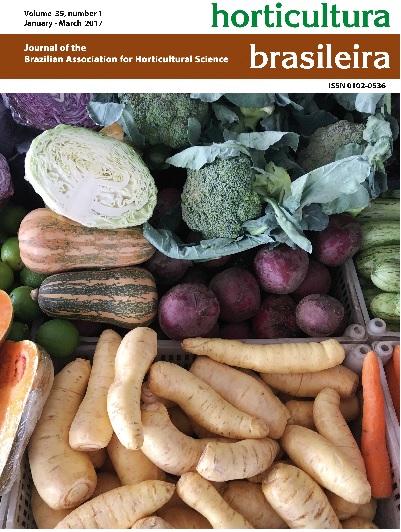
Postharvest losses of perishables in Brazil: what do we know so far?
Gilmar Paulo Henz
Autor convidado (mini currículo)
Gilmar P Henz
Holds a B.Sc. degree in Agronomy (1982) from the Federal University of Rio Grande do Sul (UFRGS) and M.Sc. and Ph.D. degrees in Plant Pathology (1986 and 2001) from University of Brasilia (UnB). He started his career as a researcher in Postharvest Pathology at Embrapa Vegetables in 1989. His research interests include Plant Pathology, Postharvest Technology and Horticulture, with short-period trainings in Hungary (potato production, AgroInvest), Peru (potato soft rot, International Potato Center), Japan (Postharvest of Vegetable Crops, JICA), South Korea (Capsicum breeding, RDA) and Taiwan (Capsicum anthracnose, AVRDC). He was Editor-in-Chief of the Journal Horticultura Brasileira from 1990 to 1997. Author of many scientific and technical papers, books and book chapters, Dr. Henz was also the Head of Communication and Technology Transfer of Embrapa Vegetables from 2004 to 2008. From 2010 to 2014, he was appointed as Agricultural Attaché to the Brazilian Embassy in South Africa. From 2014 to 2015, he worked with sanitary and phytosanitary negotiations at the Brazilian Ministry of Agriculture, Livestock and Food Supply (MAPA). Currently, he is a researcher at the Secretariat of Intelligence and Macrostrategy, where he joined the team of Agropensa, Embrapa's Strategic Intelligence System.
Edição v34 n4 - Outubro - Dezembro, 2016
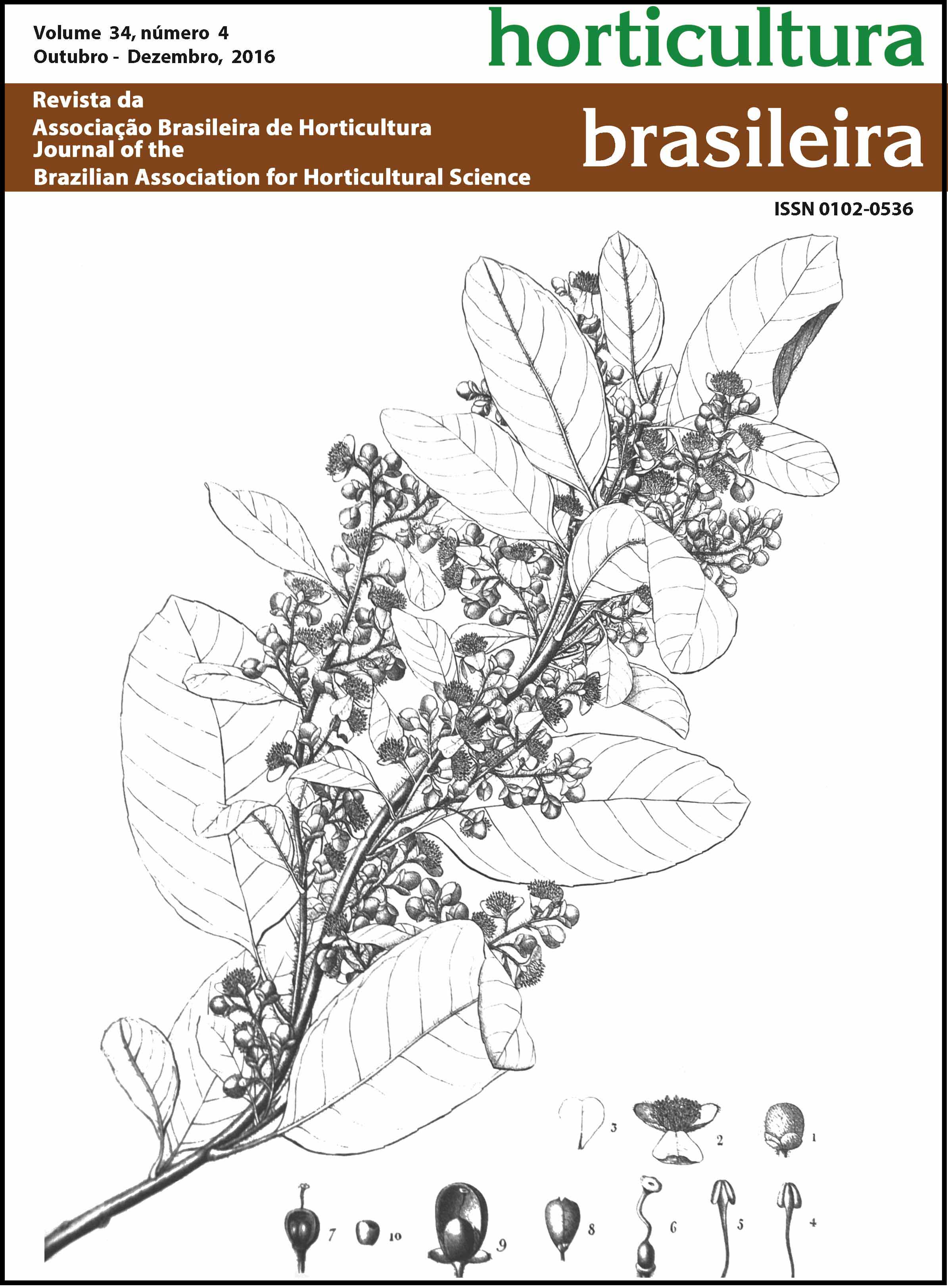
Autores convidados (mini currículos)
Fernanda LB Mügge - Fernanda graduated in Pharmacy at the Faculty of Pharmacy of the Federal University of Minas Gerais in 2013. M.Sc. in Cell Biology and Ph.D. student in Cell Biology at the same University, Fernanda has been working with Saint-Hilaire materials in Paris and collecting data and plants in Minas Gerais since the beginning of the project.
Juliana de Paula-Souza -Juliana graduated in Agronomic Engineering at the College of Agriculture “Luiz de Queiroz”, at the University of São Paulo. She holds M.Sc. and Ph.D. degrees in Biological Sciences – Botany – from Institute of Biosciences of the same university, and post doctorates at the Federal University of Minas Gerais, University of São Paulo and Ohio University. Currently, Fernanda is professor at the Department of Biological and Exact Sciences (DECEB) of the Federal University of São João del Rei. She has research interests in Taxonomy and Plant Systematics with emphasis in Neotropical Violaceae, biogeography and floristic surveys, with several published papers in these areas.
Jean CS Melo - Jean graduated in Pharmacy at the Faculty of Pharmacy of the Federal University of Minas Gerais in 1990 and obtained his M.Sc. in Food Technology in 2014 at the same University. In 2015, he joined the group as a PhD student in Food Sciences. In his thesis, Jean is evaluating the antioxidant activity of plants cited by Saint-Hilaire in the municipality of Januária, north of Minas Gerais.
Maria GL Brandão - Maria graduated in Pharmacy at the Faculty of Pharmacy of the Federal University of Minas Gerais (UFMG), in 1981. Ph.D. in Chemistry of Natural Products by the same University (1991), Maria is currently full professor at Faculty of Pharmacy and heads the Specialized Center of Aromatic, Medicinal and Toxic Plants (CEPLAMT), from the Museum of Natural History and Botanic Garden of UFMG. She is specialist in medicinal and useful native Brazilian plants and works with the recuperation of data, images and samples of these plants and their chemical and biological properties as well.
Edição v34 n3 - Julho - Setembro, 2016
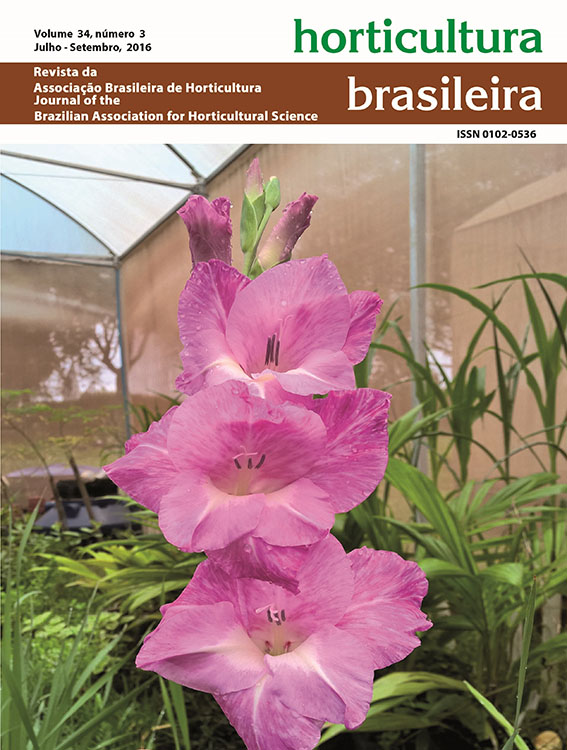
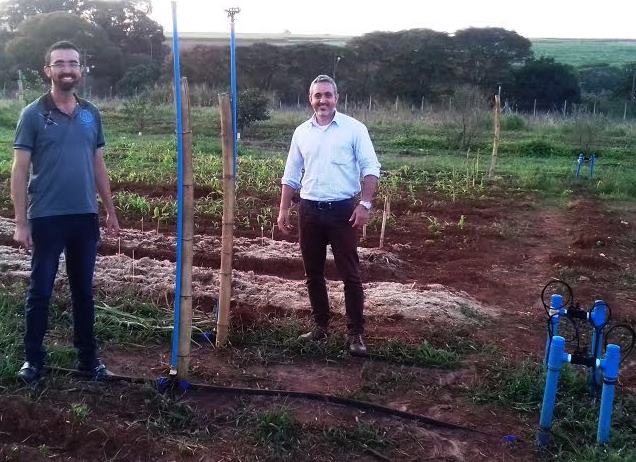
Autores convidados (mini currículos)
Jean Carlos Cardoso (à esquerda): Graduate in Agriculture at São Paulo State University, College of Agricultural Sciences (UNESP-FCA), in Botucatu. Ph.D. in Biology and Agriculture in the Environment at the University of São Paulo, Center for Nuclear Energy in Agriculture (USP-CENA). Professor Department of Rural Development, Federal University of São Carlos, Center of Agrarian Sciences (UFSCar-CCA), in Araras, Brazil. Involved in research, extension and teaching of horticulture, plant breeding and physiology, and biotechnology applied to environmental horticulture. Researcher (2nd grade) of the National Council for Scientific and Technological Development (CNPQ), working with flower breeding and propagation (Process 304174/2015-7). Professor in graduate and undergraduate courses at UFSCar-CCA (Graduate Program in Vegetal Production and Associated Bioprocesses). Coordinator of the Research Group on Vegetable Species and Landscaping since February 2013 and author of papers about plant tissue culture, flower breeding and environmental horticulture. Scientific editor for Ornamental Plants on the journal Horticultura Brasileira since February 2015 and reviewer of international journals in Horticulture and Plant Sciences.
Douglas Roberto Bizari: Graduate in Agronomy at the Federal University of São Carlos, Center of Agrarian Sciences (UFSCar-CCA). Ph.D. in Irrigation and Drainage at the College of Agricultural Engineering of the State University of Campinas (Unicamp-Feagri). Professor at the Department of Rural Development (UFSCar-CCA) in Araras, Brazil. Involved in research, extension and teaching of agricultural hydraulics, irrigation management, sprinkler and drip irrigation systems and reuse water. Coordinator of the Study Group on Irrigation Technology (UFSCar-CCA) and author of papers on irrigation impacts on crop yield, water use efficiency and soil moisture sensors.

